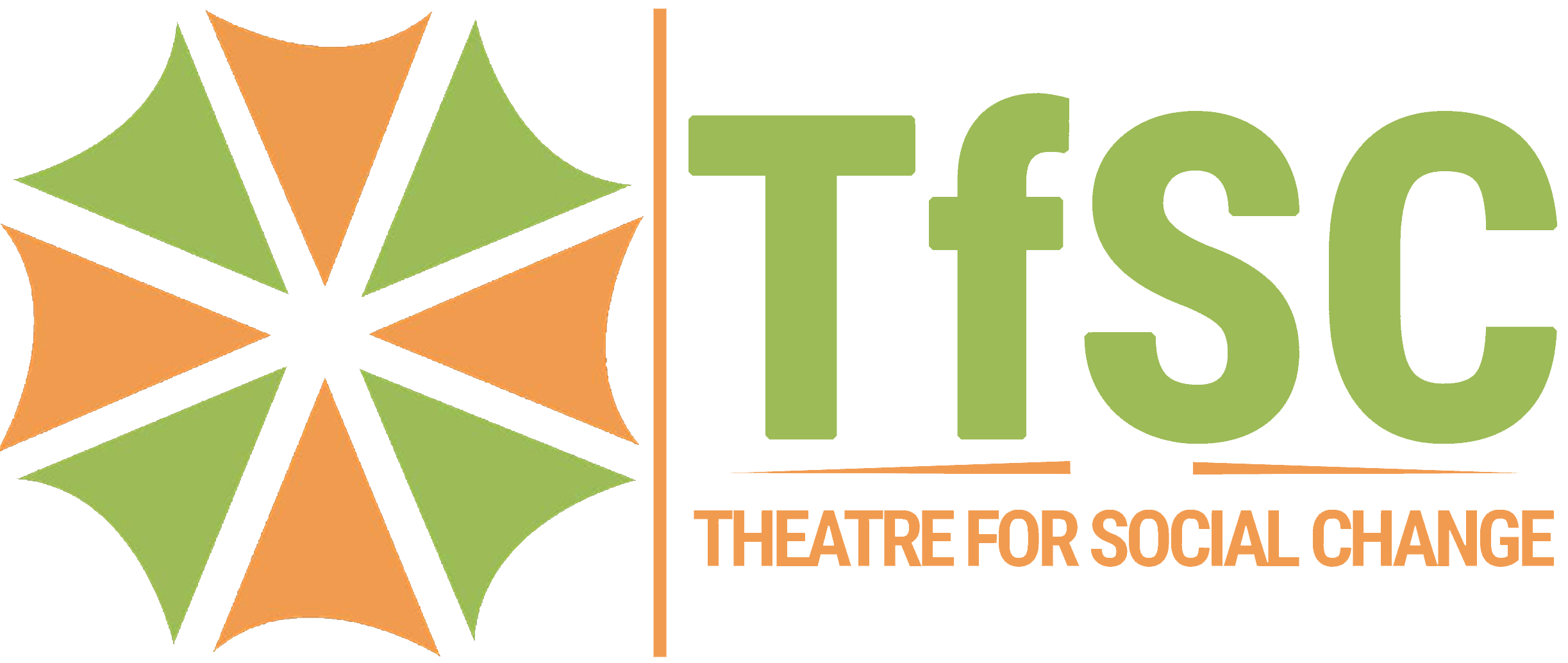PROJECTS
Social Mobilization Through Theatre For Emergency Polio Outbreak Response in 3 Regions in Ghana - Greater Accra, Central And Eastern
Donor: UNICEF Ghana
Period: November 2020 – February 2021
Results: Reached 5249 people (comprising 1648 males and 3599 females) including duty bearers, caregivers, parents, from the Greater Accra, Central and Eastern regions in 48 communities in 12 districts with awareness, education and knowledge to practice good personal hygiene; regularly attend child welfare clinics for routine immunization against polio and other child diseases; acceptance of mass polio immunizations, identify early signs of polio and the need to seek early medical attention for early diagnoses; and the awareness that polio has no cure but the surest way of prevention is through the polio vaccine.
Situation Problem: There is a polio outbreak in Ghana and there is the risk of further spread of the virus because there are unimmunized children, meaning they are not protected from the poliovirus infection and hence it can easily attack them. Polio can cause life-long paralysis and even death. There is no cure for polio and it can only be prevented through vaccination.
Response Solution: A five-step approach was adapted, including initial stakeholder engagements, project baseline survey, community focus group discussions, training of community volunteers and community interactive theatre (drama) performance to creating awareness, education and knowledge to practice good personal hygiene; regular attendance to child welfare clinics for routine immunization against polio and other child diseases; acceptance of mass polio immunizations, identify early signs of polio and the need to seek early medical attention for early diagnoses; and the awareness that polio has no cure but the surest way of prevention is through the polio vaccine.
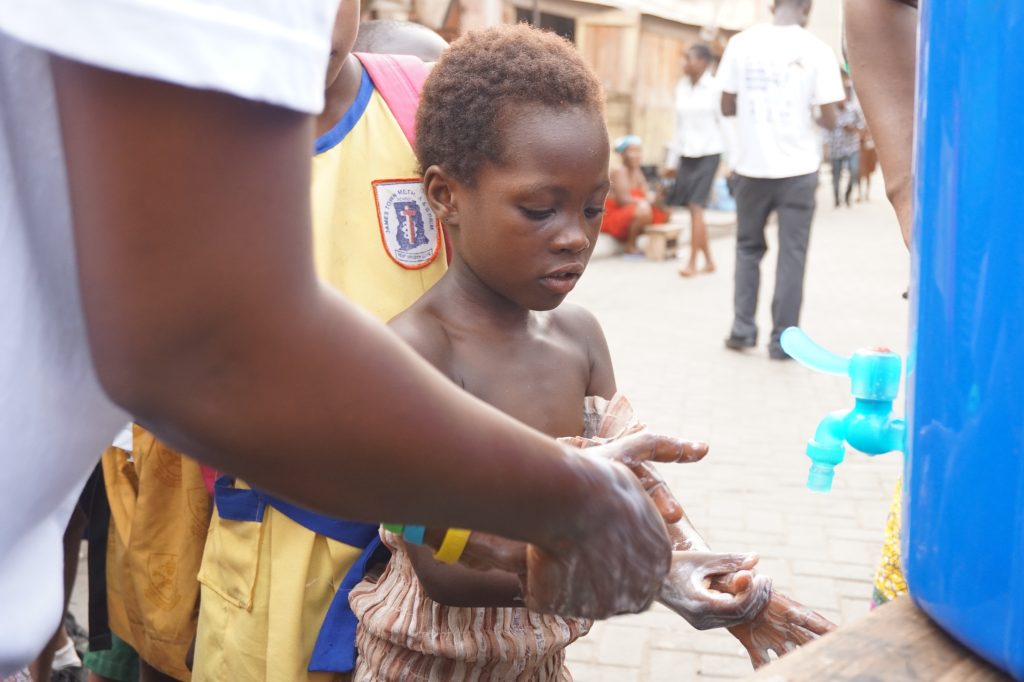
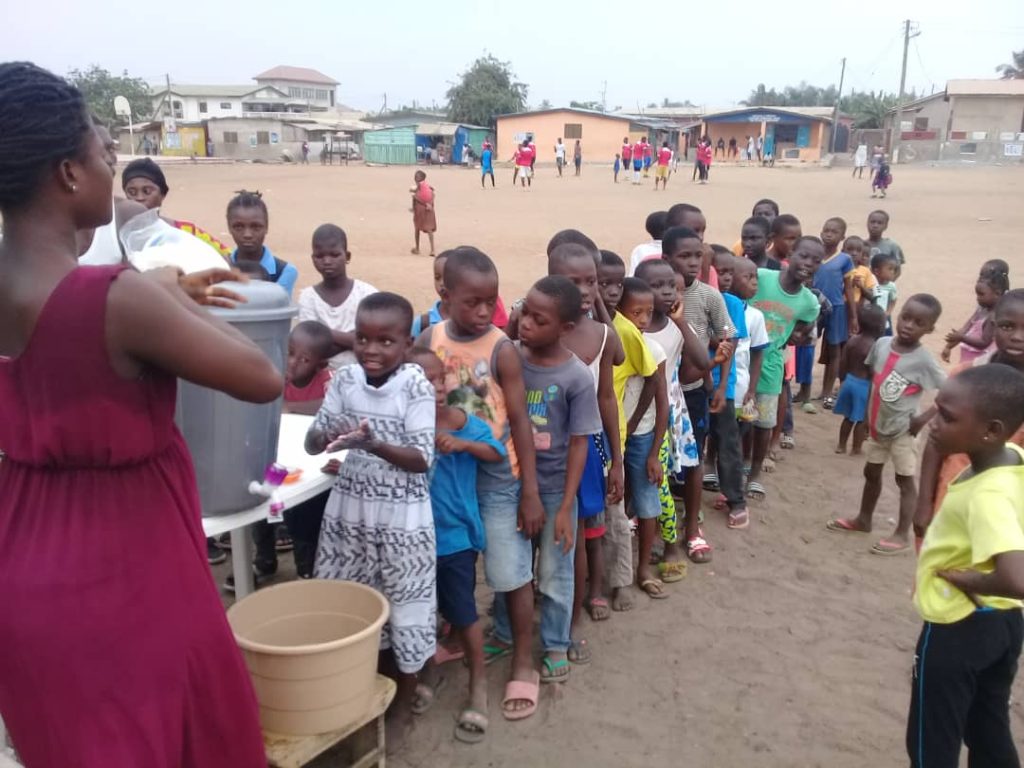
This Way Up
Donor: Dance4life Netherlands/Comic Relief
Period: January 2019 – Dec. 2020
Results: A total of 4735 young people (10yrs-18yrs) including 2059 males and 2676 females in the Talensi District in the Upper East Region and Tamale Metro in the Northern region of Ghana were reached and empowered and gained important life skills and competencies including improved confidence, ability to identify and challenge social norms, and gender-equal attitudes. They have been empowered to be self-confident to practice safe and healthy sexual behaviour. Local peer facilitators, aged 19-25years old called Champions4Life gained improved confidence and facilitation skills as peer facilitators.
Situation Problem: Unsafe sex is one of the fastest growing and biggest health risks for young people worldwide. In-school 10-14-year old girls and boys in Talensi and Tamale Metro districts in Ghana face multiple risks related to unsafe sex. One in three girls in the Northern region marries before she is 15 (Demographic Health Survey, 2014) and 38% of adolescent girls have experienced sexual violence (Ghana Statistical Services, 2016). SRHR knowledge and awareness about harmful gender norms is low. Many young people lack the life skills, confidence, and decision-making skills, as well as accurate and evidence-based information needed to make informed decisions. In short, they are not empowered to practice safe and healthy sexual behaviour, contributing to health risks but also higher risk of dropping out of school. Traditional norms among duty bearers and service providers constitute another barrier for young people’s SRHR, and local peer facilitators may not have sufficient skills to deliver efficient programs. There is a need to build on the recent pilot project and scale current efforts in Ghana to address this
Response Solution: The Journey4life model was used to empower young people (10-14yrs) to be confident, change attitudes and challenge negative social norms to reduce sexual and gender based violence, HIV and AIDS, STIs and unplanned pregnancies among young people in Ghana. The Journey4Life is an evidence-based and innovative youth empowerment curriculum that uses dance, music and youth culture to improve Sexual and Reproductive Health and Rights (SRHR) of young people. The model was complemented by facilitation of recorded radio drama in communities.
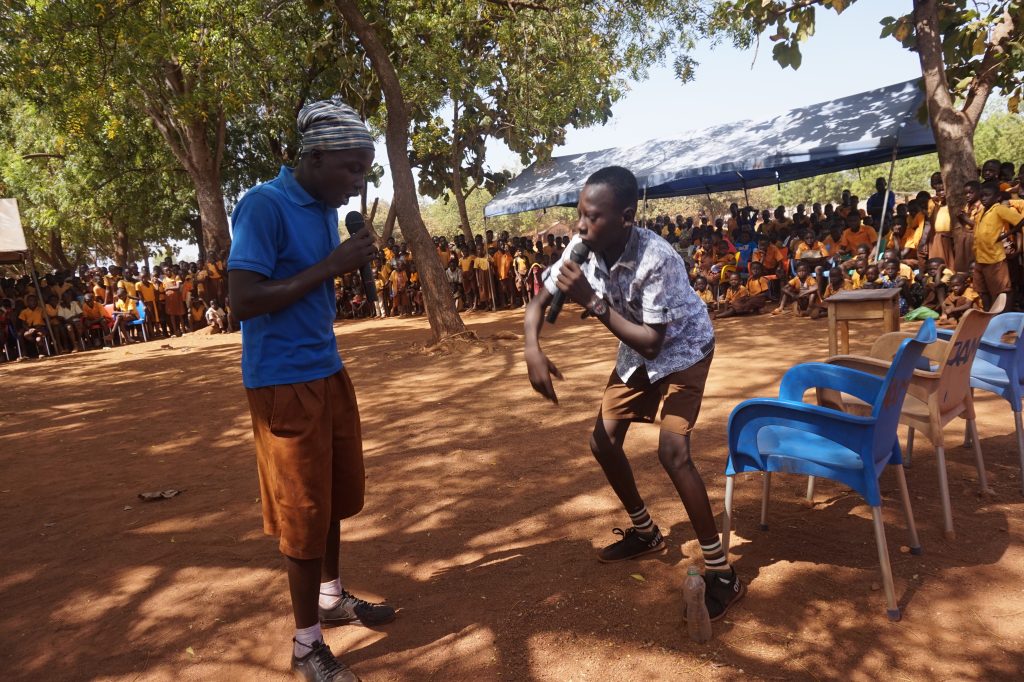
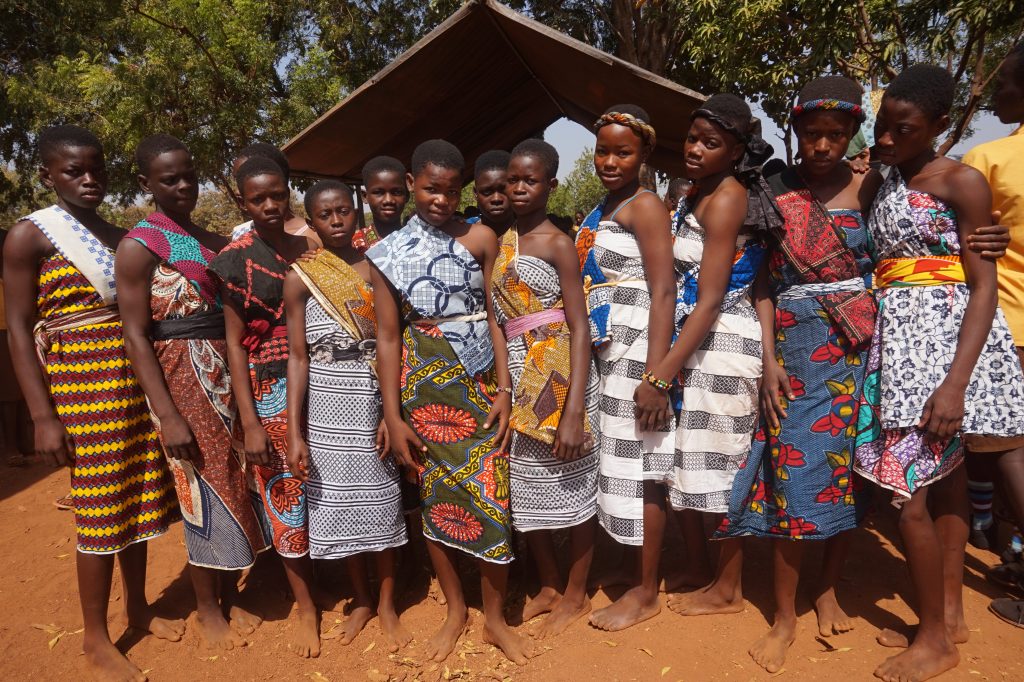
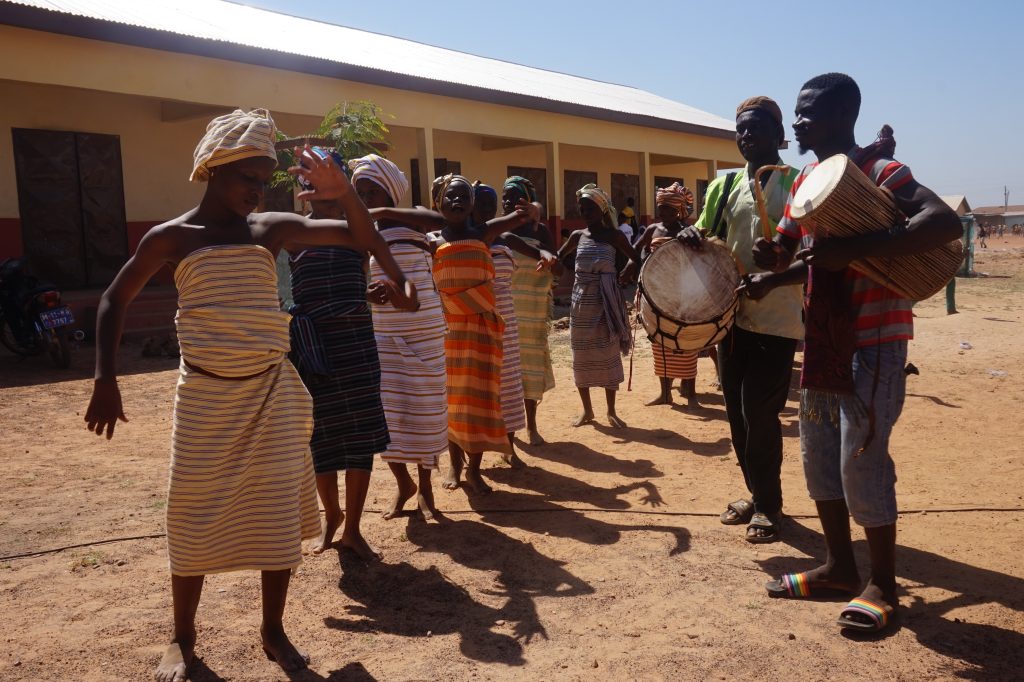
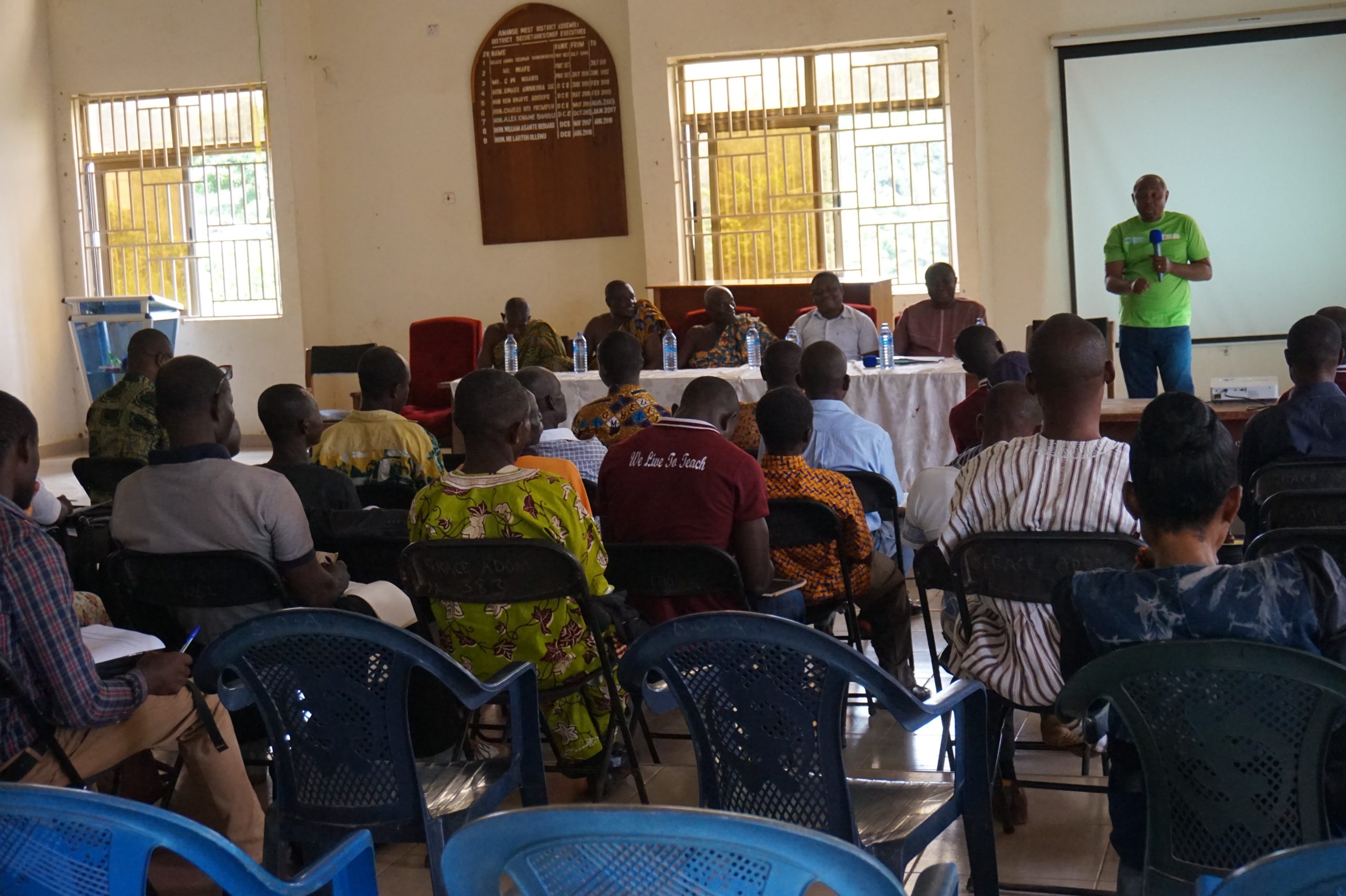
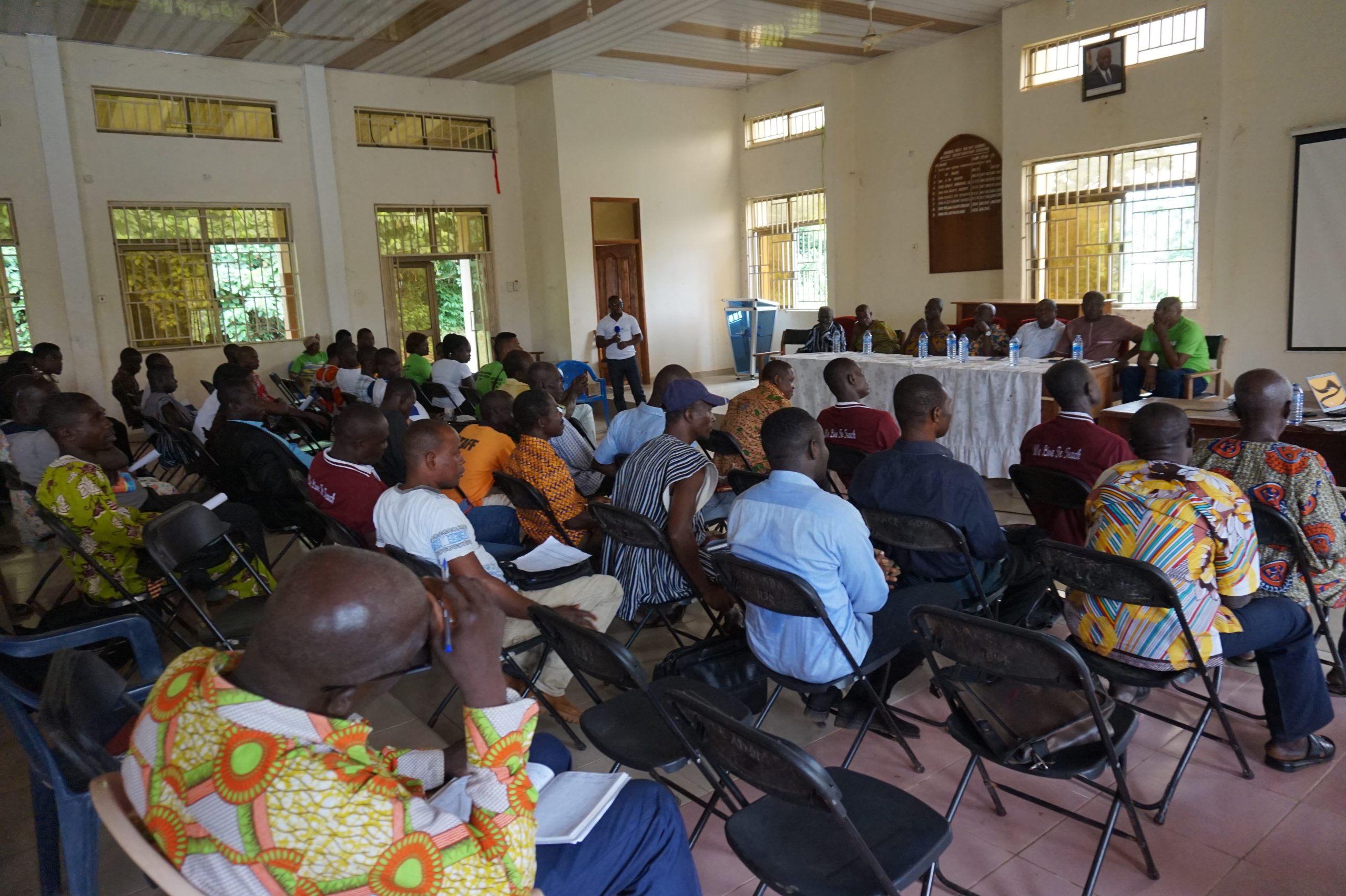
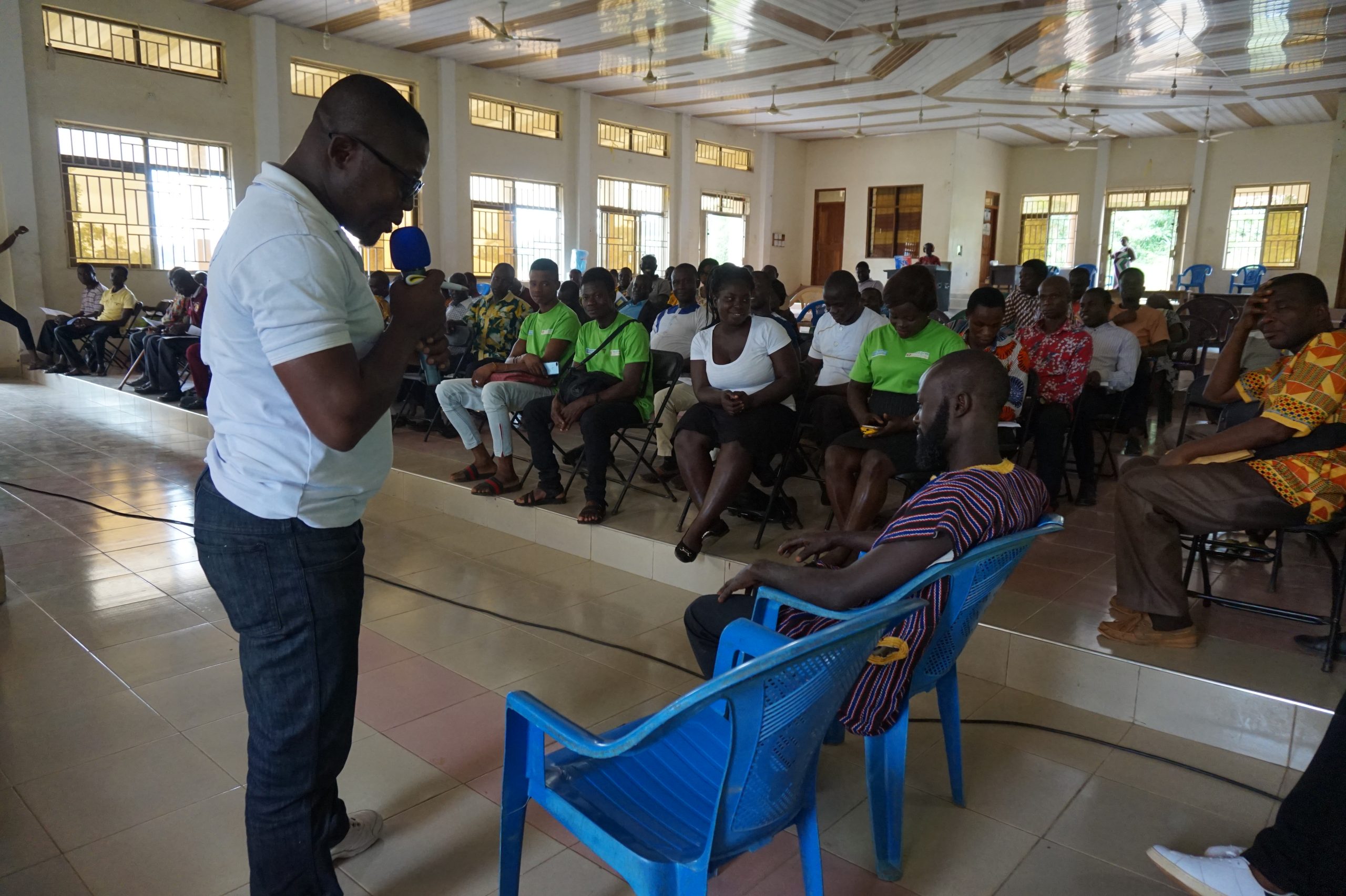
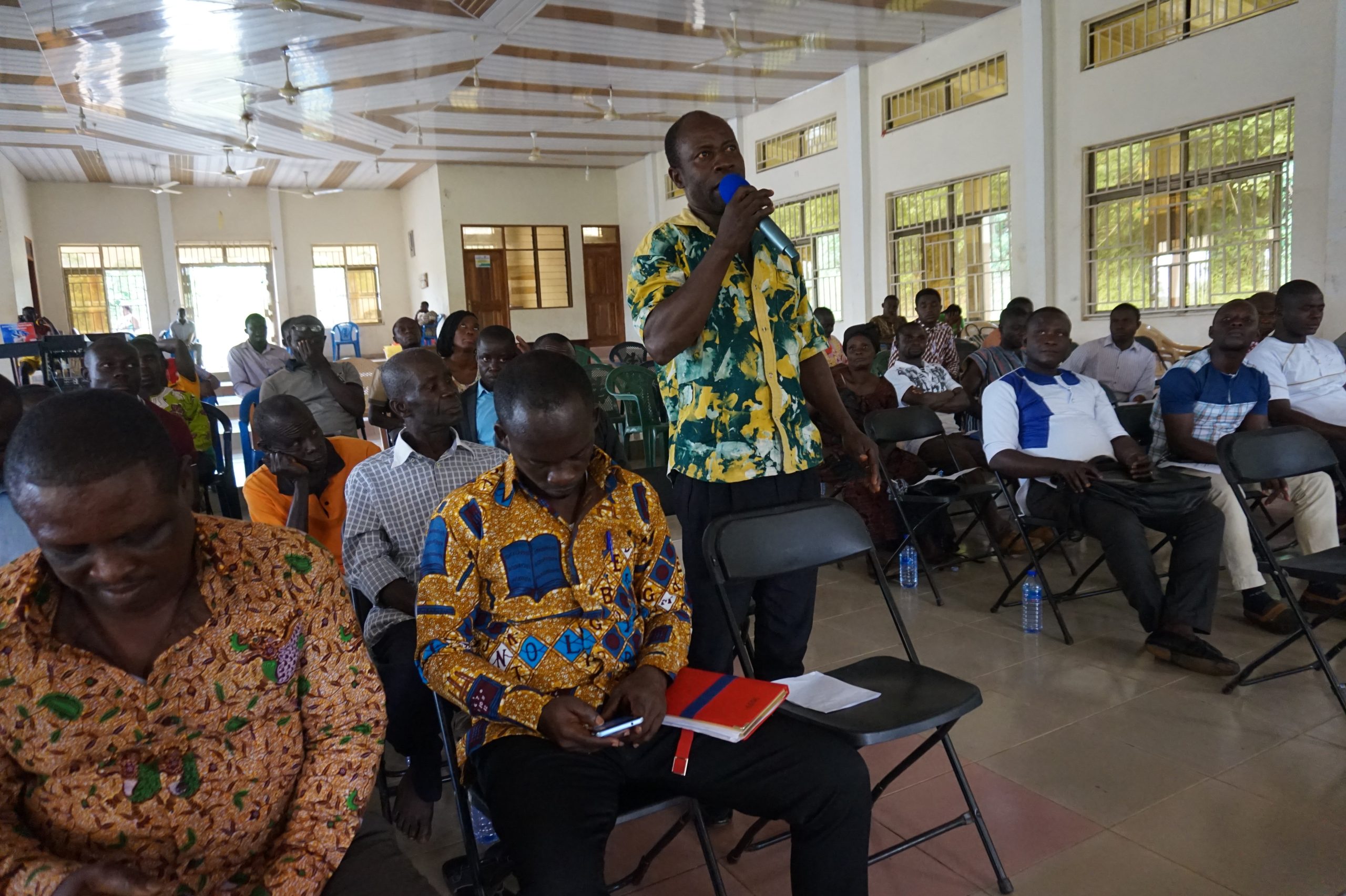
Educational Management Improvement Practices (EMIP)
Donor: STAR Ghana Foundation
Period: August 2018 – August. 2019
Results: The project reached directly 5368 people including children and youth, and an estimated 23336 people indirectly. The intervention resulted in an enhanced engagement between Ghana Education Service staff and stakeholders (including teachers and district head office staff) in promoting transparency and reducing corruption in Ghana Education Service in the Amansie West District. This was evident in the following results achieved:
- Improved demand for transparency and accountability by parents and teachers from the District Director of Education and school authorities.
- Improved level of confidence of opinion leaders and parents in reporting suspicious misconduct of teachers to the District Directorate of Education leading to the transfer of some teachers and headteachers, according to the District Director of Education.
- Duty bearers had acquired skills on how to engage parents and other stakeholders during PTA meetings and SPAM.
- Opinion leaders openly expressed their confidence to visit schools regularly to interact with teachers and where necessary demand for explanations to issues of concern including the capitation grant and school feeding programme
Situation Problem: The concept and practice of transparency and accountability especially in government offices, is still new and met with great scepticism within Ghana. In education sector, district education offices seldom see such accountability and transparency modelled within Ministry of Education and Ghana Education Service and are a bit challenged when it comes to financial accountability and transparency as the resources and amount they receive from headquarters are rarely known until they arrive, typically later than planned and at the level considerably below what is needed. Similarly, there is lack of transparency and accountability between the District Education Offices and district/community stakeholders; and between headmasters, teachers, non-teaching staff and parents. This is due to poor governance and management systems within the districts offices and schools arising from structural weakness, non-inclusiveness, non-transparent and unaccountable management systems which create experience of greater corruption, inequalities, disempowerment, insecurity, marginalisation, and affect stakeholders’ access to education services. With lack of emphases place on accountability and transparency within education sector in general it can take some time for leadership to understand the importance of the value of greater accountability and transparency unless external agency identify and demonstrates the effects and cost to education quality outcome.
Response Solution: The project used four major strategies to enhance the engagement between duty bearers and rights holders to promote transparency and accountability to reduce perceived corruption in Ghana Education Service in Amansie West District, especially in the areas of capitation grants and school feeding programme. These strategies involved stakeholder meetings, stakeholders/community workshops, interactive theatre performances and project monitoring.
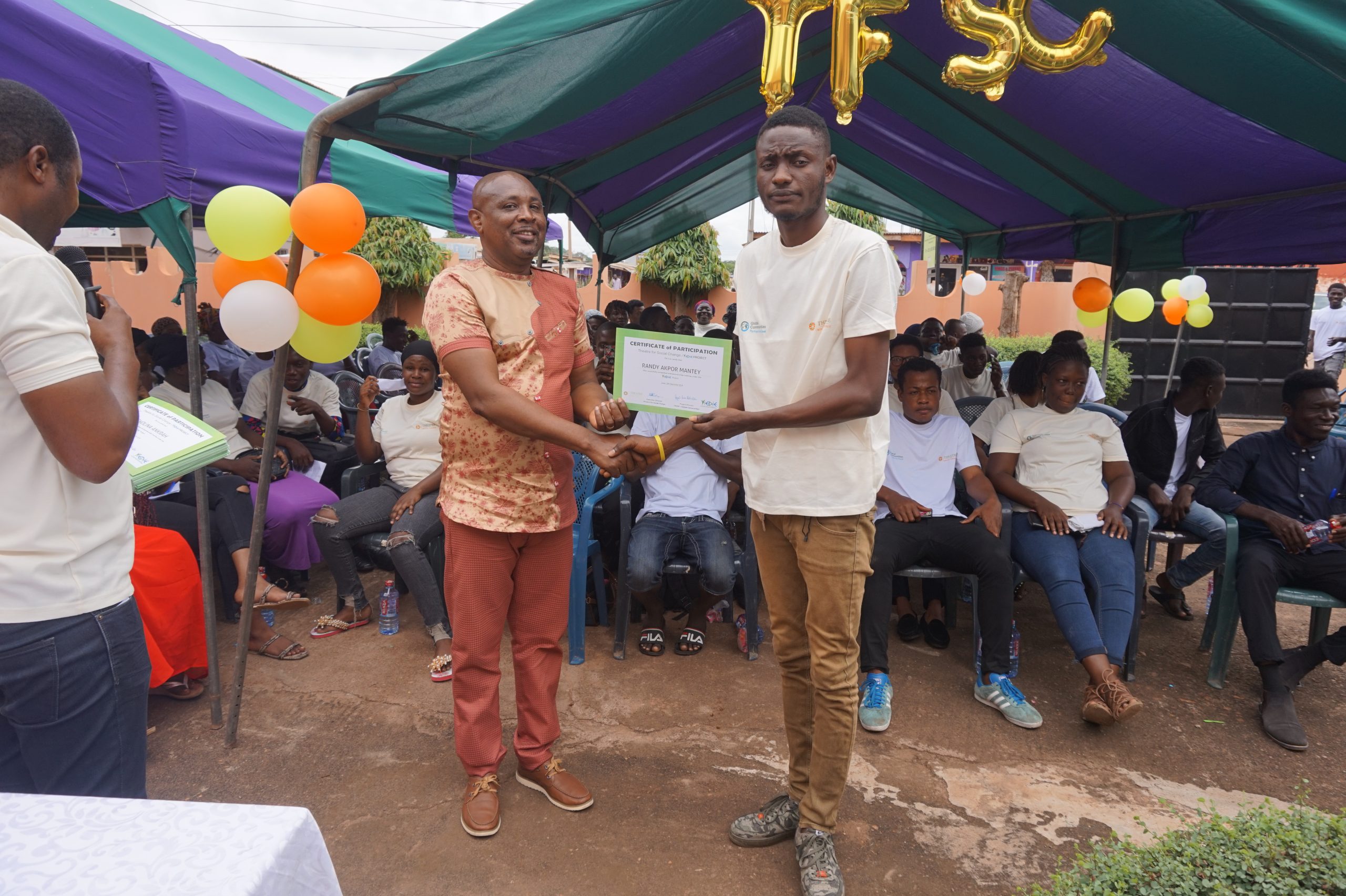
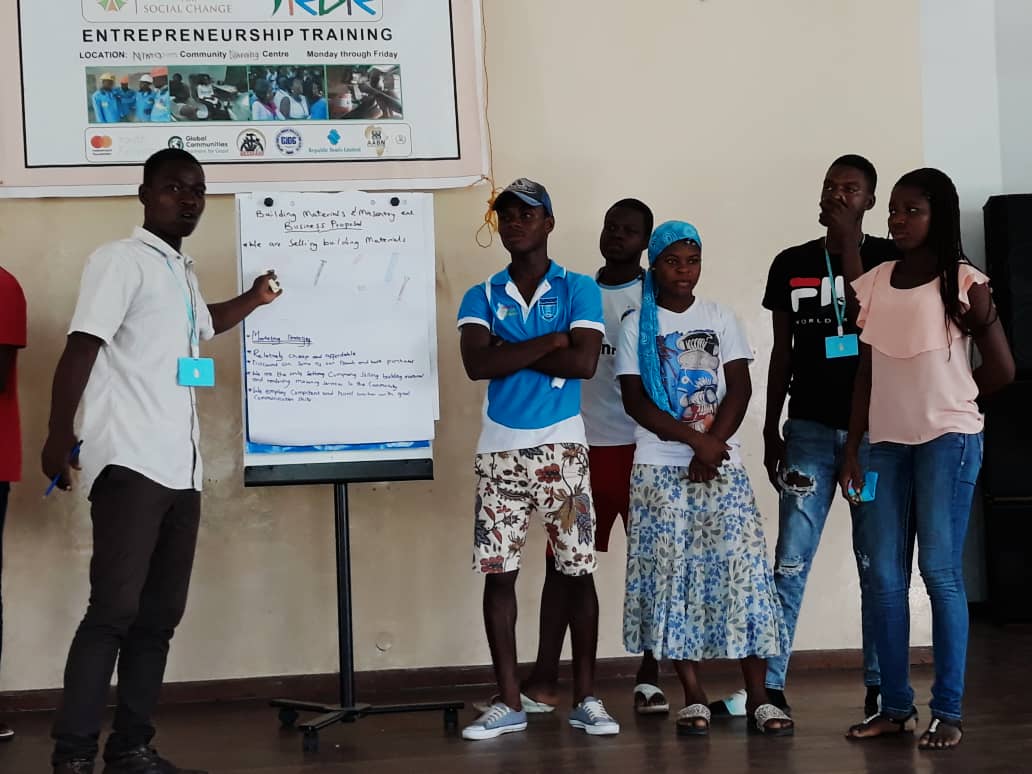
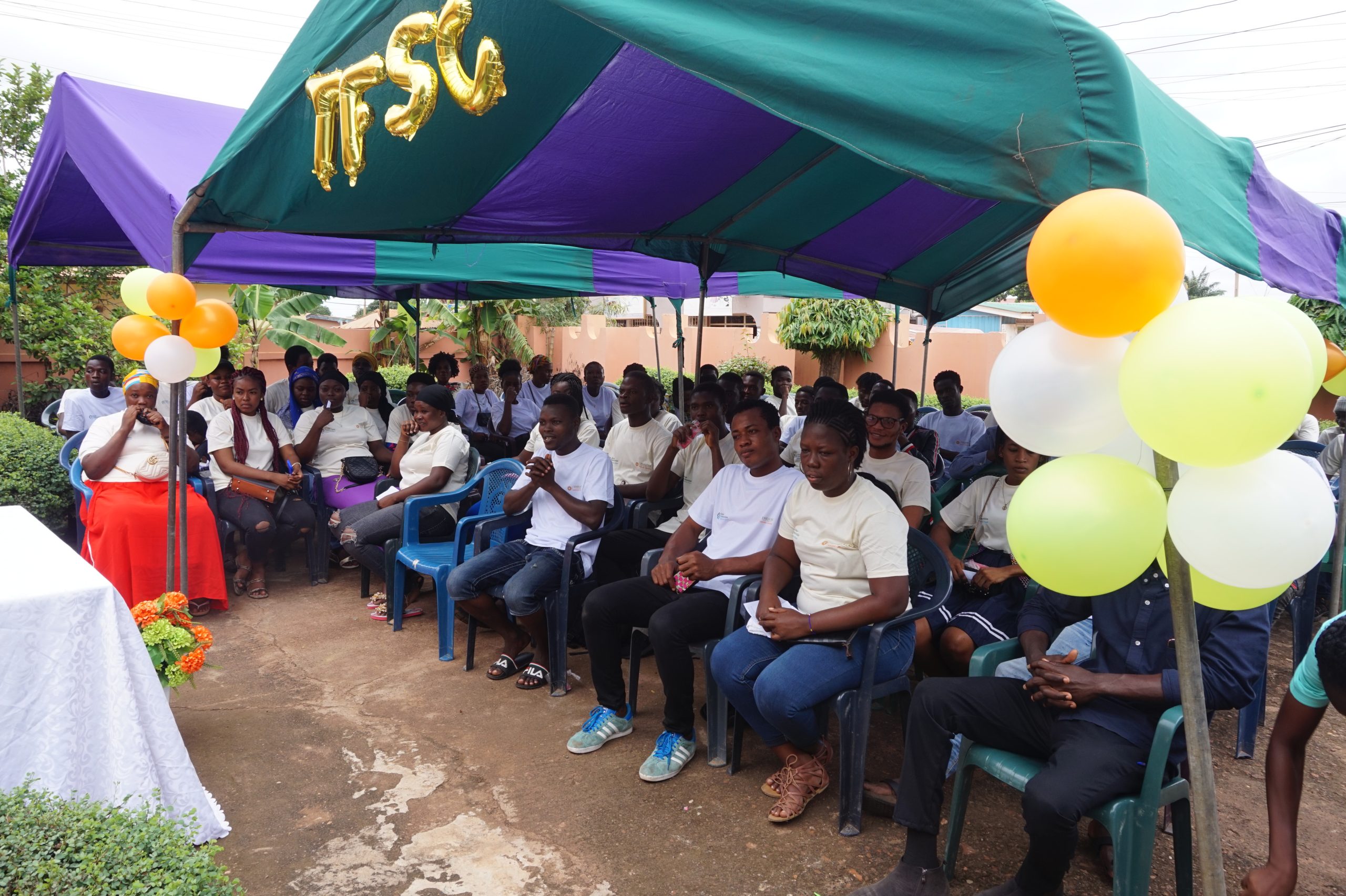
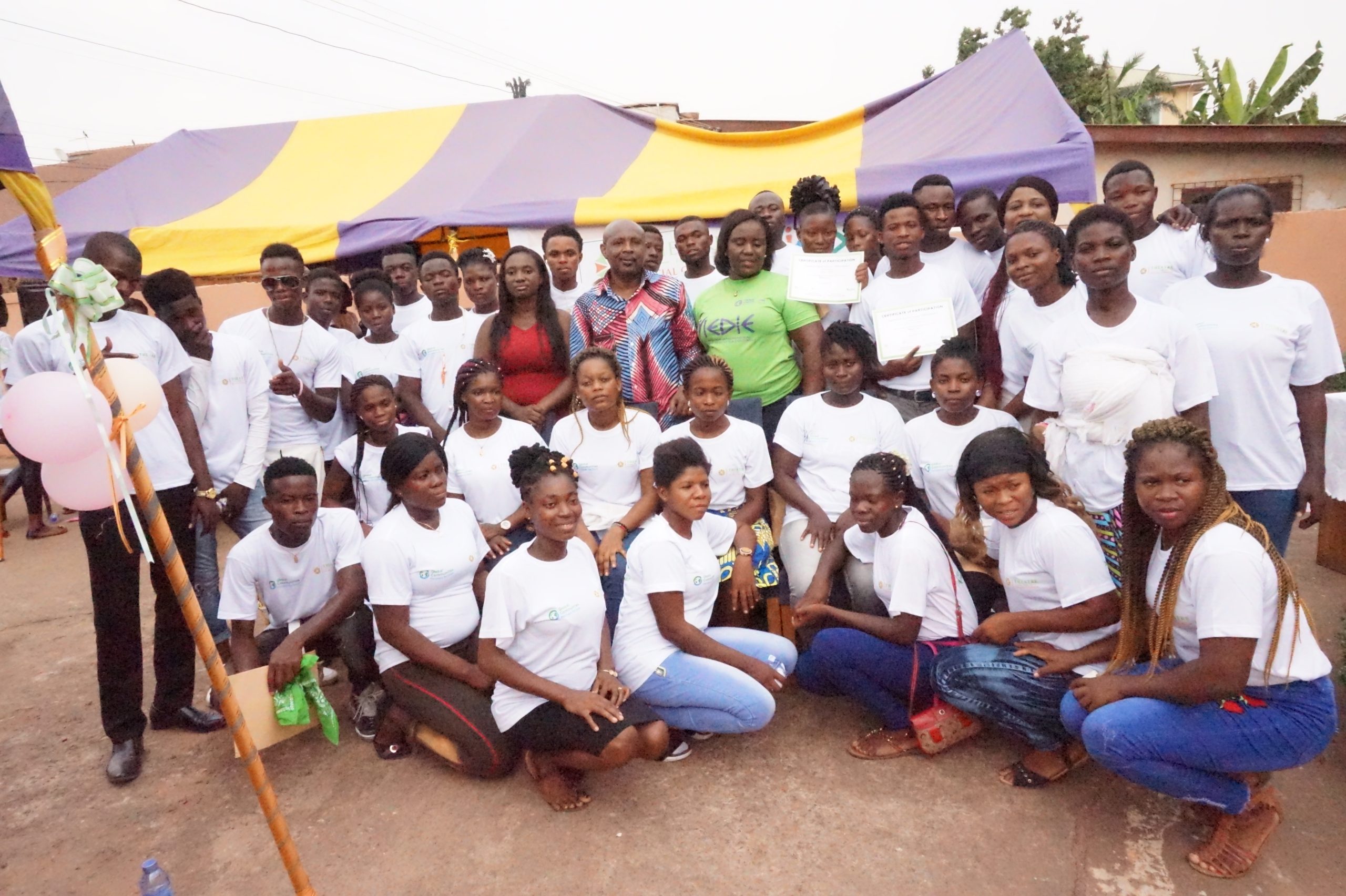
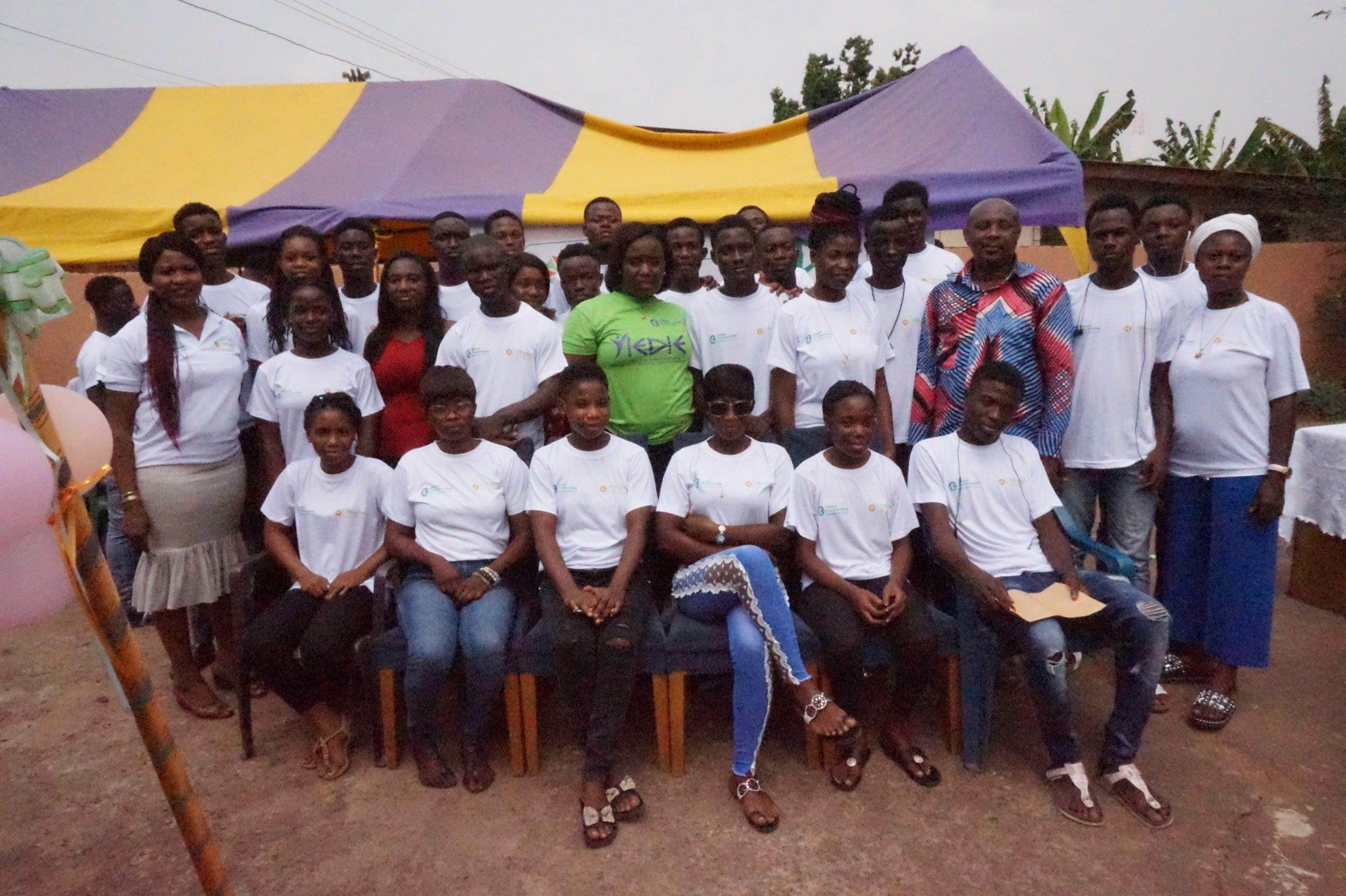
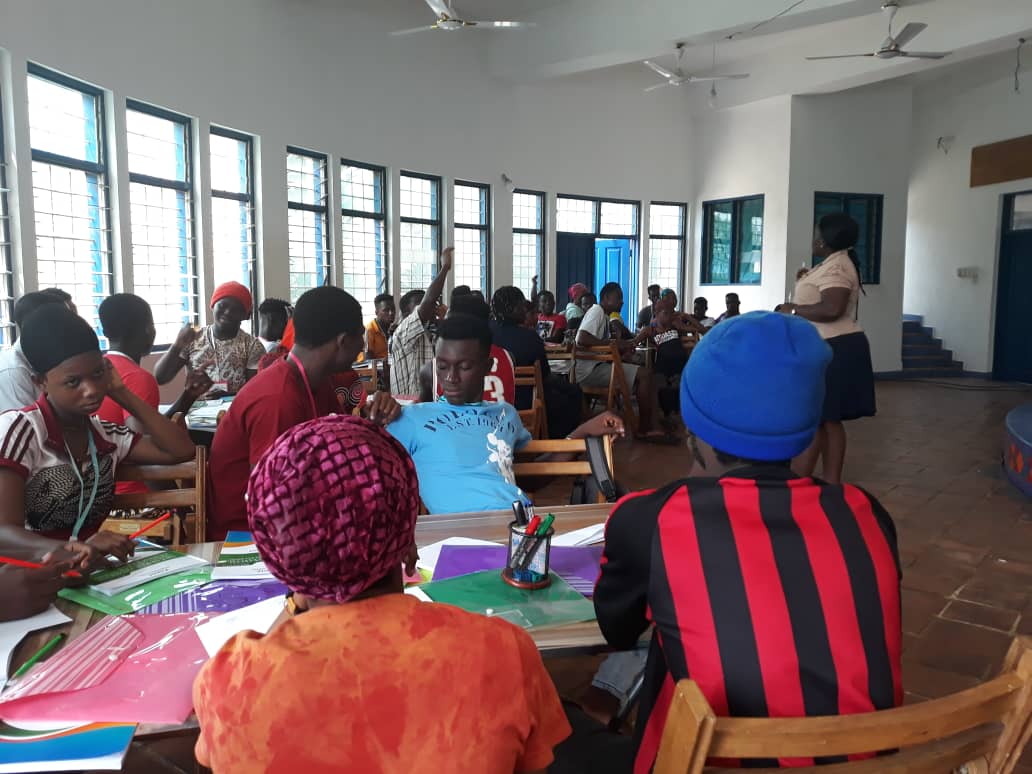
Youth Inclusive Entrepreneurial Development Initiative for Employment (YIEDIE)
Period: May 2018 – Sept. 2019
Donor: Global Communities
Results: Provided life skills, financial literacy and entrepreneurship training for 382 youth aged 17-24 years in the construction sector. The trained youth comprising 183 males and 199 females, were trained in six municipalities in the Greater Accra Region (Ga South District, Ayawaso North Municipality, La Dadekotopon Municipality, La-Nkwantanang-Madina, Ga West Municipality and Ashiedu Keteke Sub Metro). With the support of Global Communities (Mastercard Foundation) and AAG, six of the trained youth had received start-up package of up to GHS6000 to start their own business. The youth had been given the opportunity to start their own businesses.
Situation Problem: Ghana’s young people face one of the highest youth unemployment rates in the world. Yet, the local construction sector is booming and is poised to create 700,000 new jobs by 2020. However, to be ready for these jobs, youth will need relevant technical skills and recognized certification of them; entrepreneurial and job readiness skills; and networks, contacts and referrals. Others in the sector will need increased capacity and incentives to create new openings for youth.
Response Solution: Mobilized, screened and provided integrated life skills, financial literacy and entrepreneurship training for youth aged 17-24 in the construction sector in six municipalities in the Greater Accra Region.
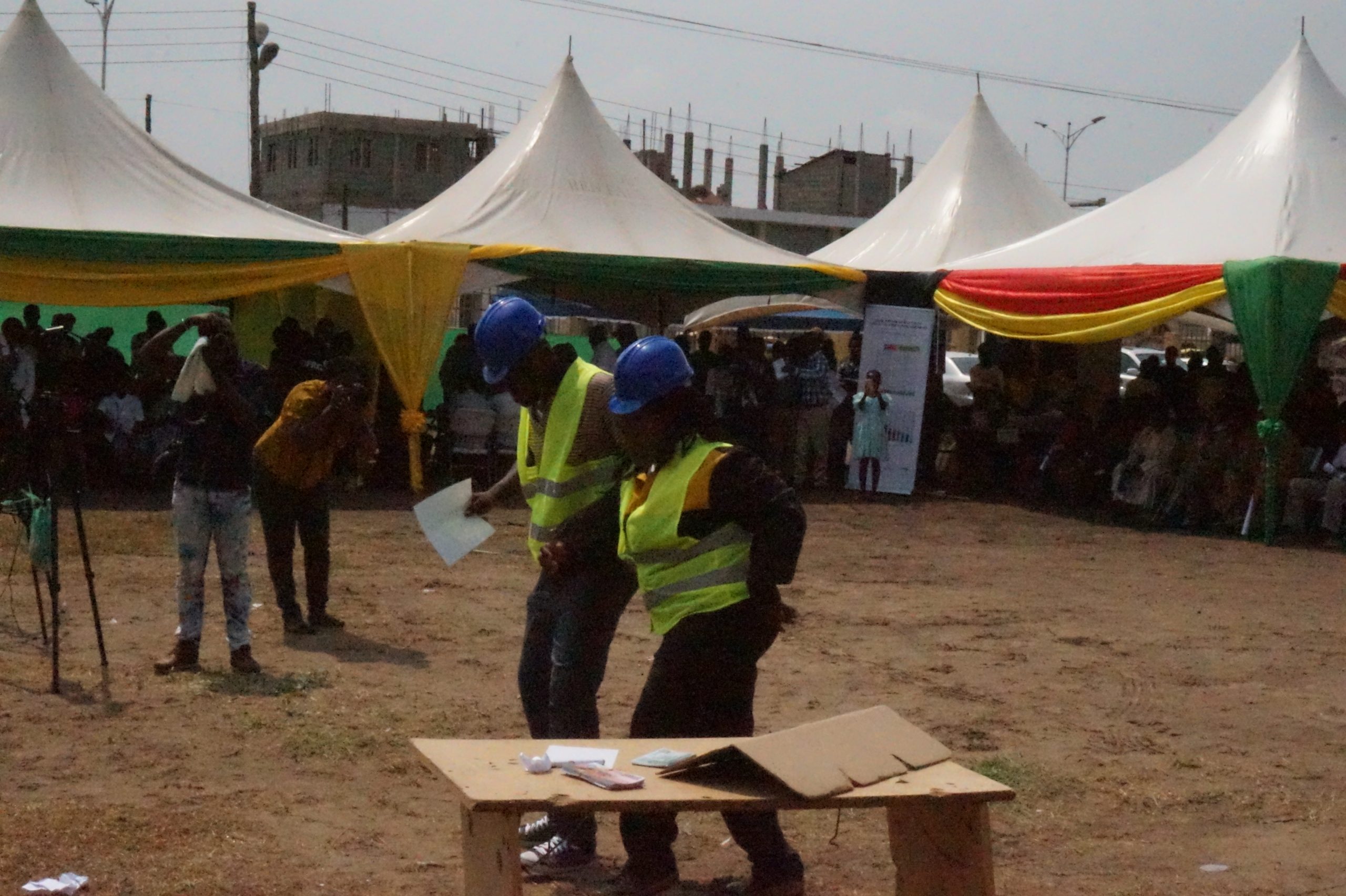
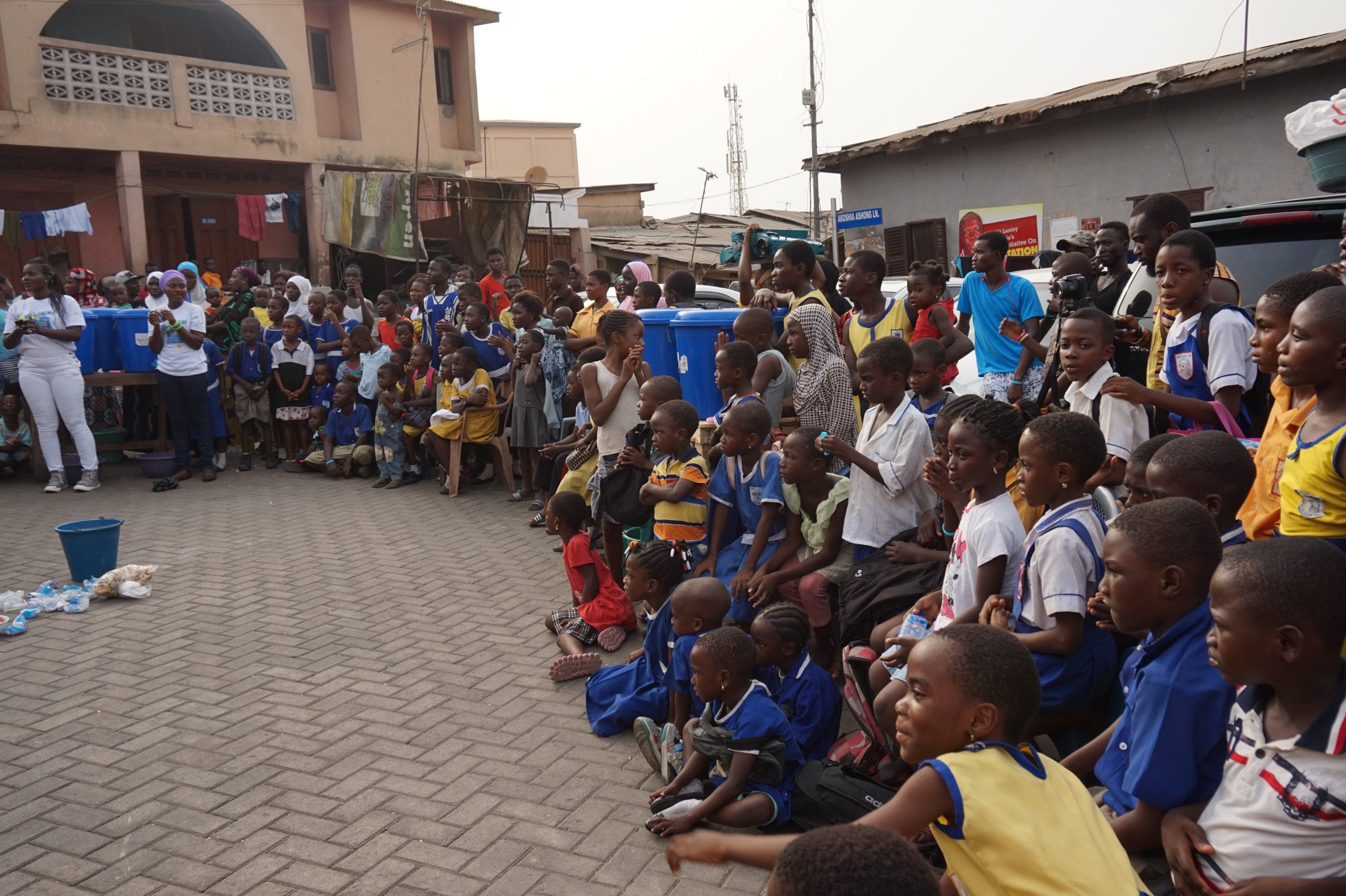
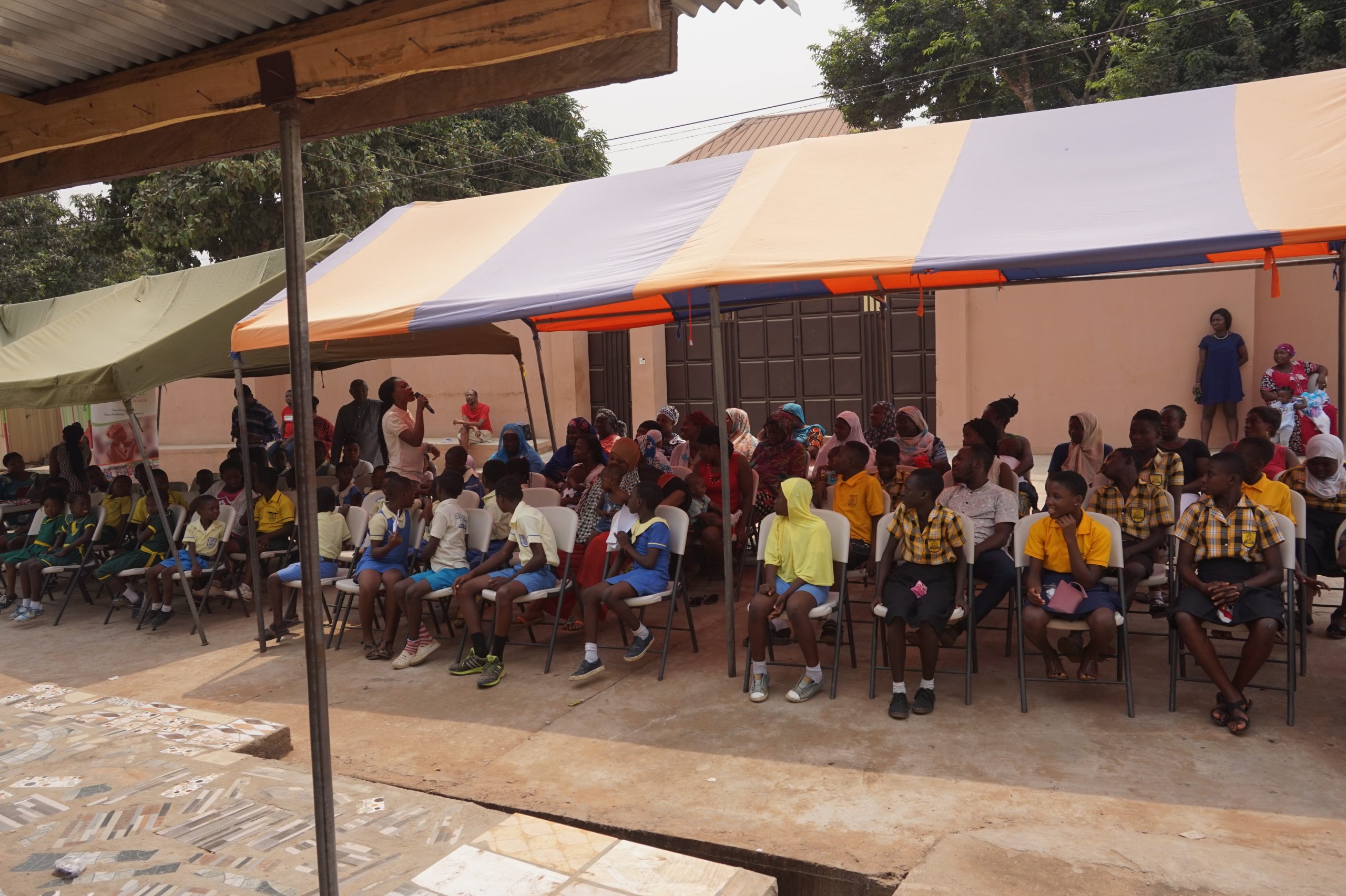
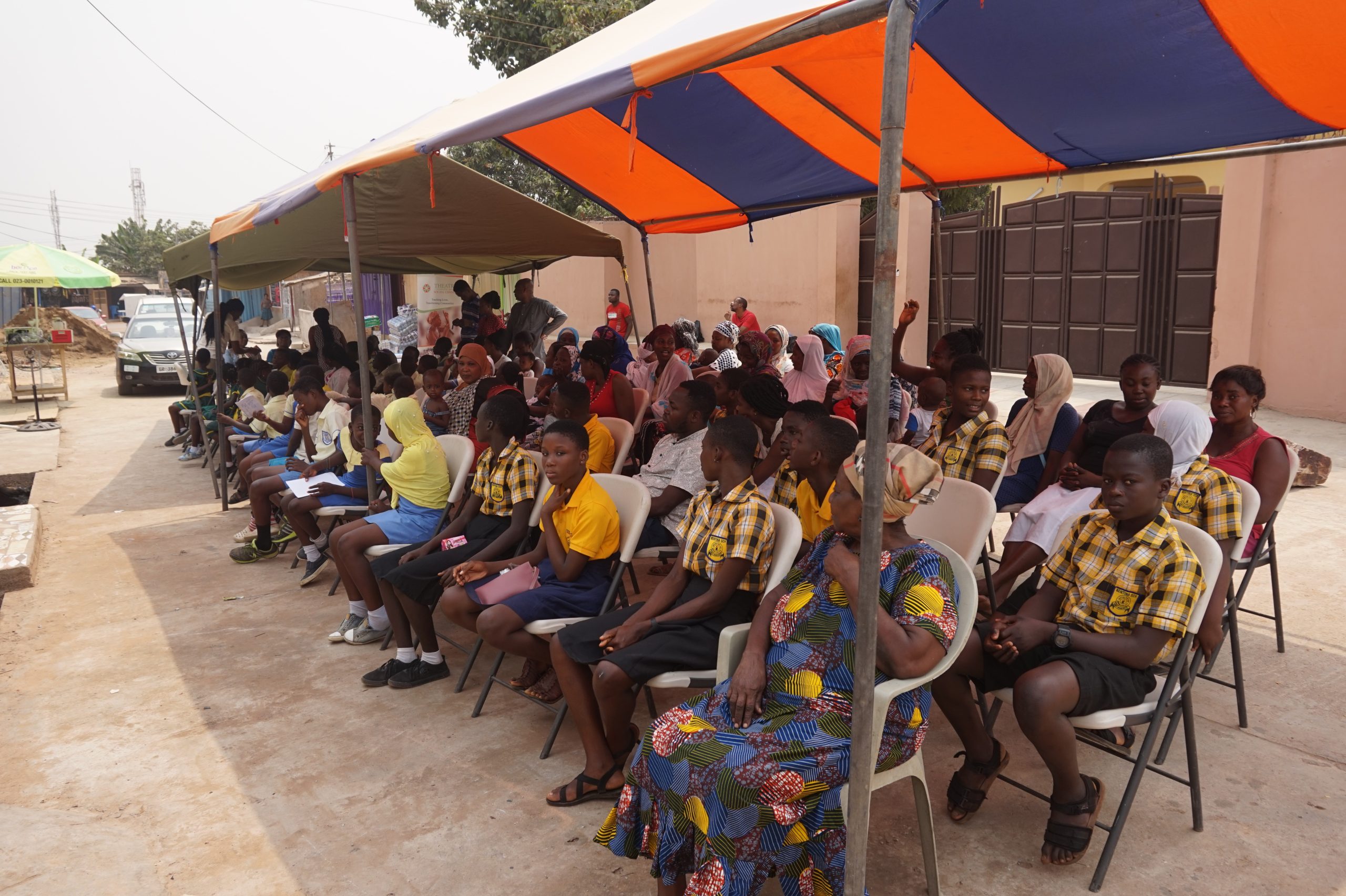
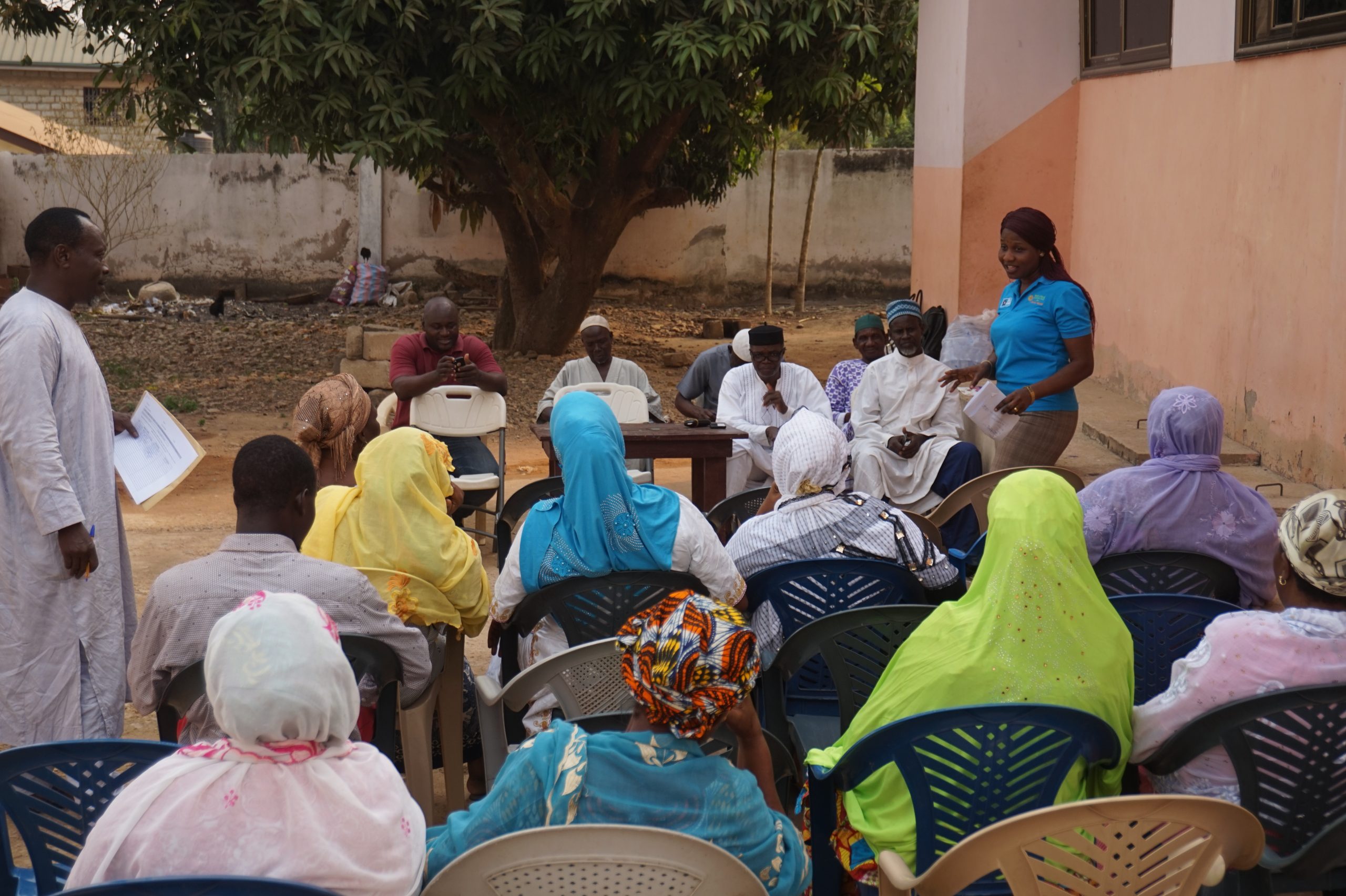
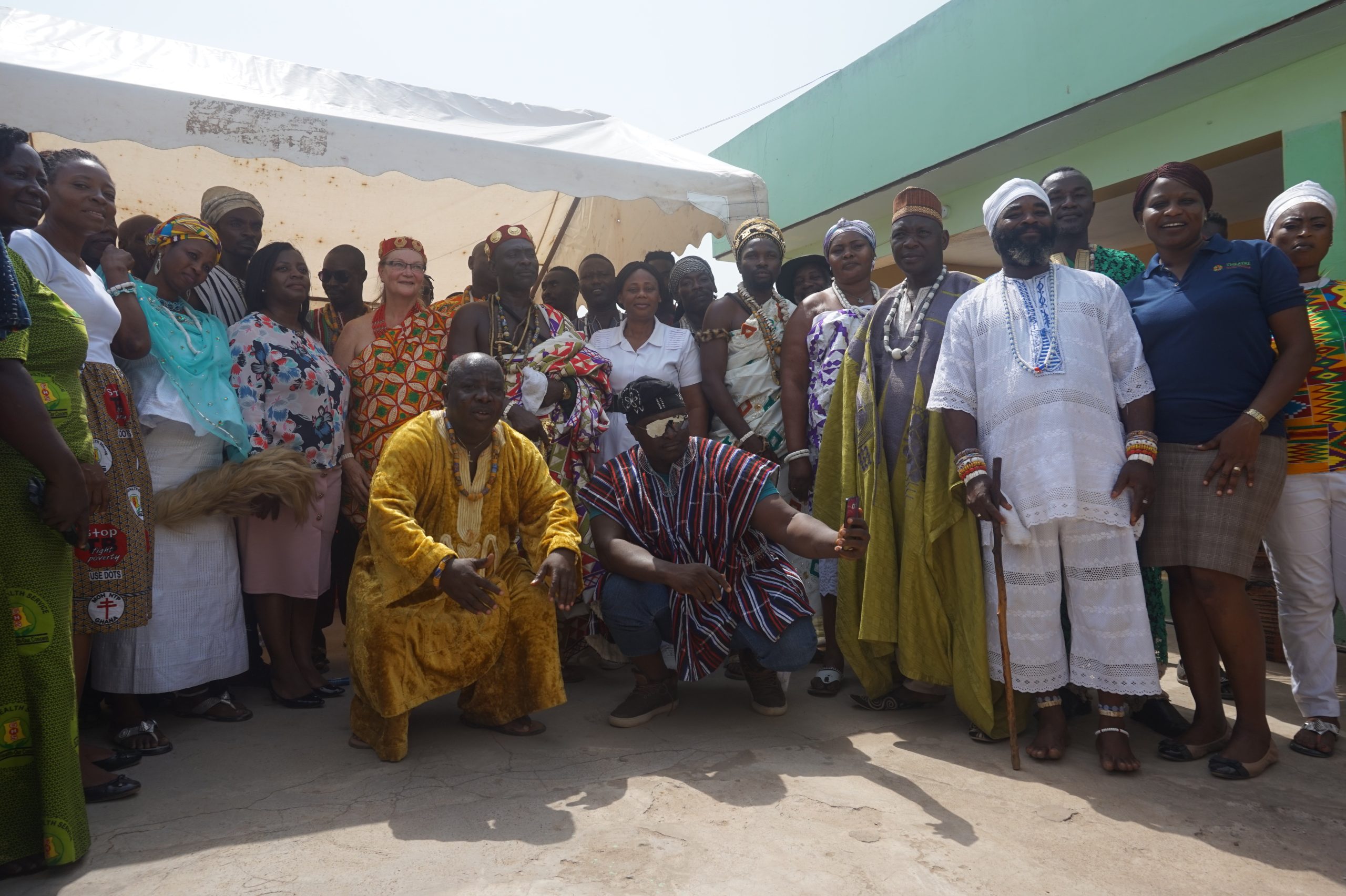
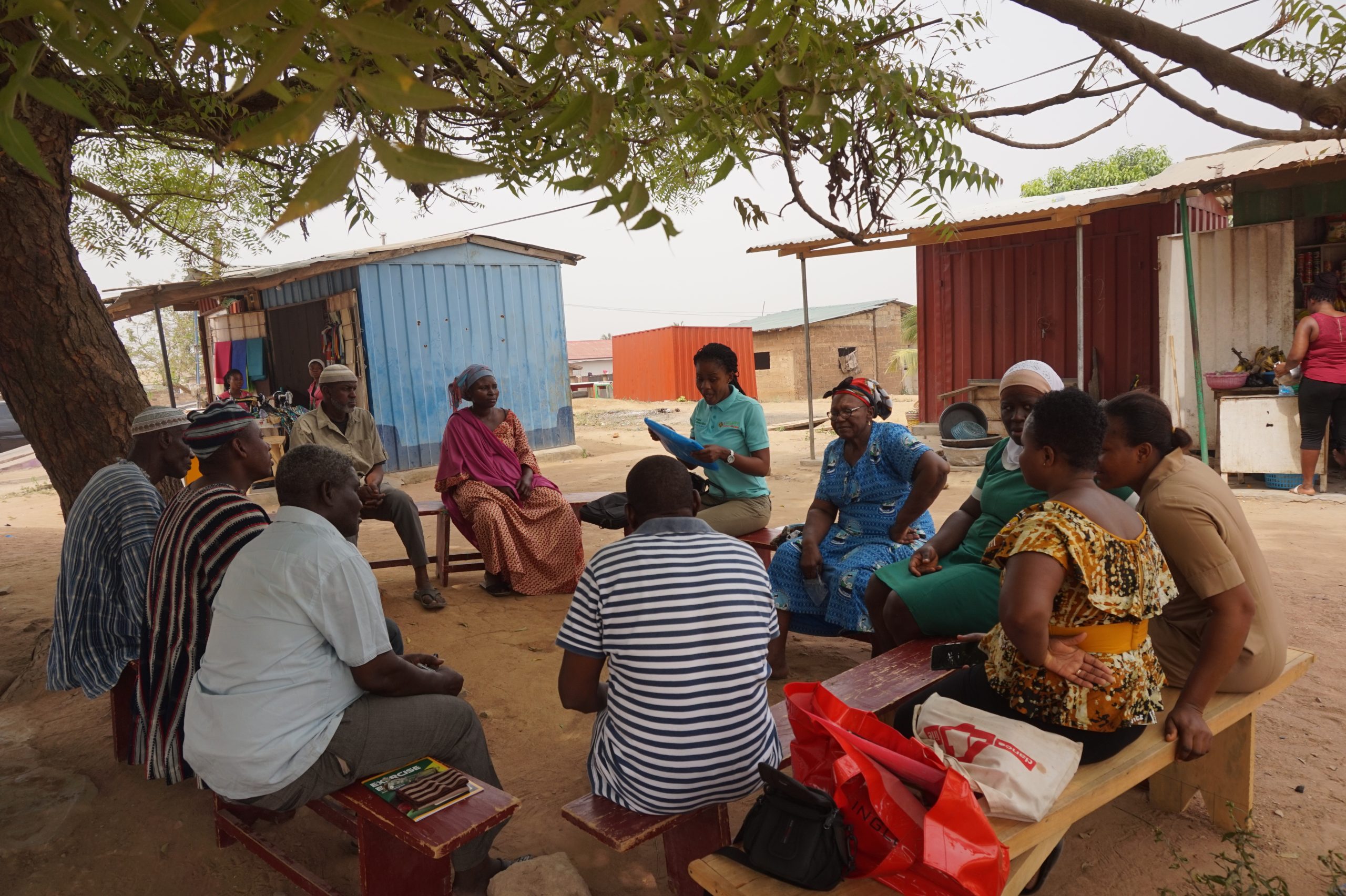
Urban Sanitation Programme to End Open Defecation
Donor: UNICEF Ghana
Period: June 2018 – March. 2019
Results: In all 129 volunteers were trained in interactive theatre (drama) performance in 3 municipalities: Ashaiman, Ho and Tamale Metro. Five hundred and seventy-nine (579) people signed up to construct their own household toilets (HHT)
- Six thousand six hundred and ten (6610) people reached with information and education on the benefit of HHT.
- People have acquired knowledge and developed interest in HHT
- The project has improved sign-ups for household toilets. Raised awareness and improved sign-ups for credit for the construction of household toilets.
- Visibility of the UNICEF Urban Sanitation Programme has been enhanced through the various community level theatre performances.
- Project has gained sustainability by training volunteer performers across the communities to champion sanitation activities
- The project provided an opportunity for self and community-wide enquiry into sanitation behaviours and practices as the interactive theatre performances re-lived the experiences of the people and suggested solutions to overcoming the challenges.
- The project through the use of interactive theatre contributed to demand for the construction of household toilets among people in the communities.
Situation Problem: People living and working in poor urban communities in Ghana are at particularly high risk of the transmission of cholera and other sanitation related diseases and fatality due to poor access to clean water, poor sanitation facilities and limited access to health services. High rates of irregular or no school attendance mean that children and young people in such communities require a community-based intervention. The potential for spread of these sanitation related diseases is high considering the continuous existence of the following risk factors: open defecation, inadequate supply of safe water; poor food and personal hygiene and poor liquid and solid waste disposal.
Response Solution: Conceptualized, developed and drafted drama scripts for the approval of UNICEF Ghana C4D and beneficiary municipalities. Trained community volunteers to perform the developed scripts in their communities. Performed exciting and innovative community based drama and skits in 3 MMDAs aiming to promote capacity building and social change by creating awareness, practical skills and knowledge strengthening of communities on best sanitation practices and business opportunities and hence creating demand for the construction of household toilets and to improve sanitation in 3 municipalities (Ho, Tamale and Ashaiman)
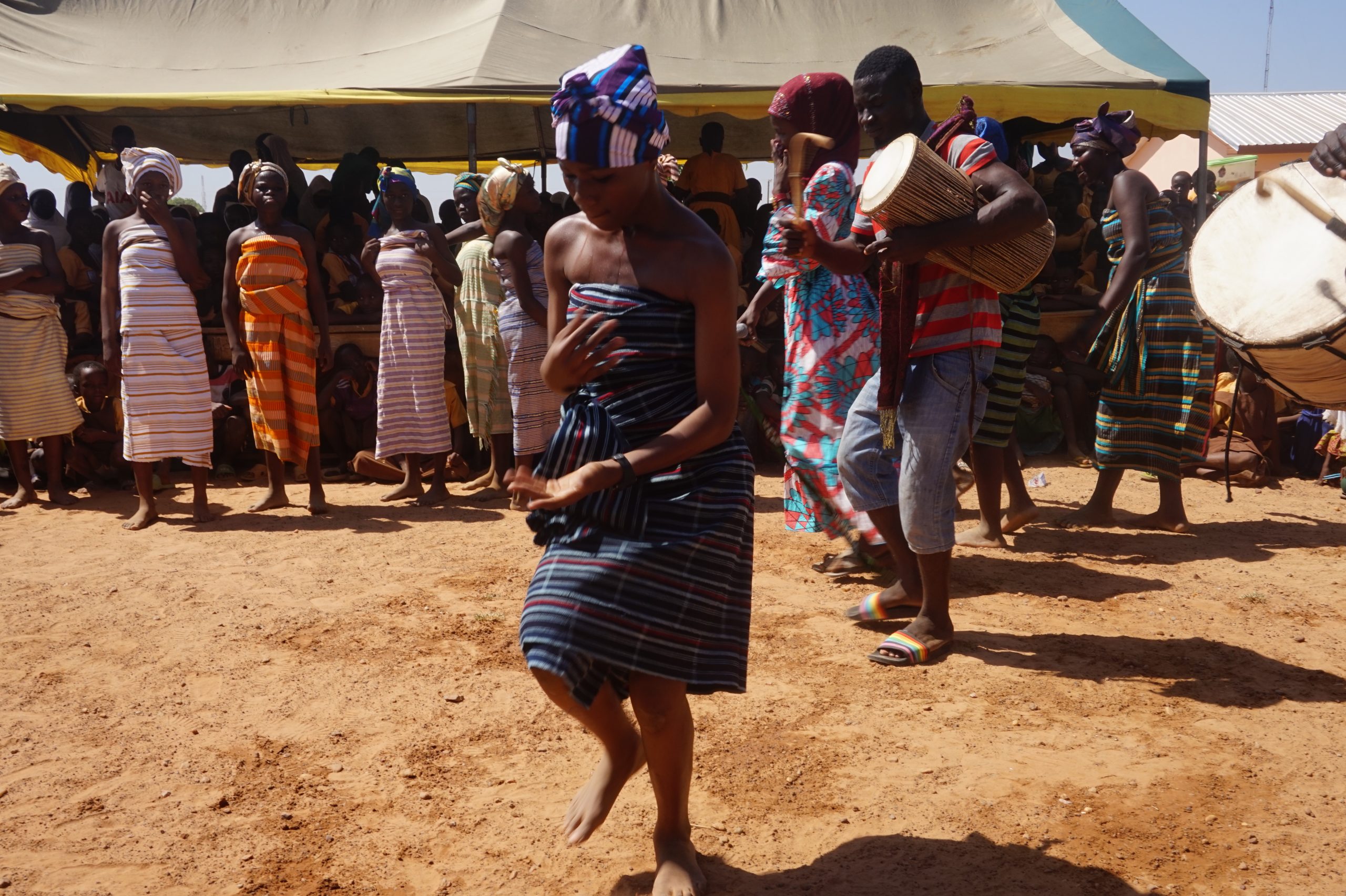
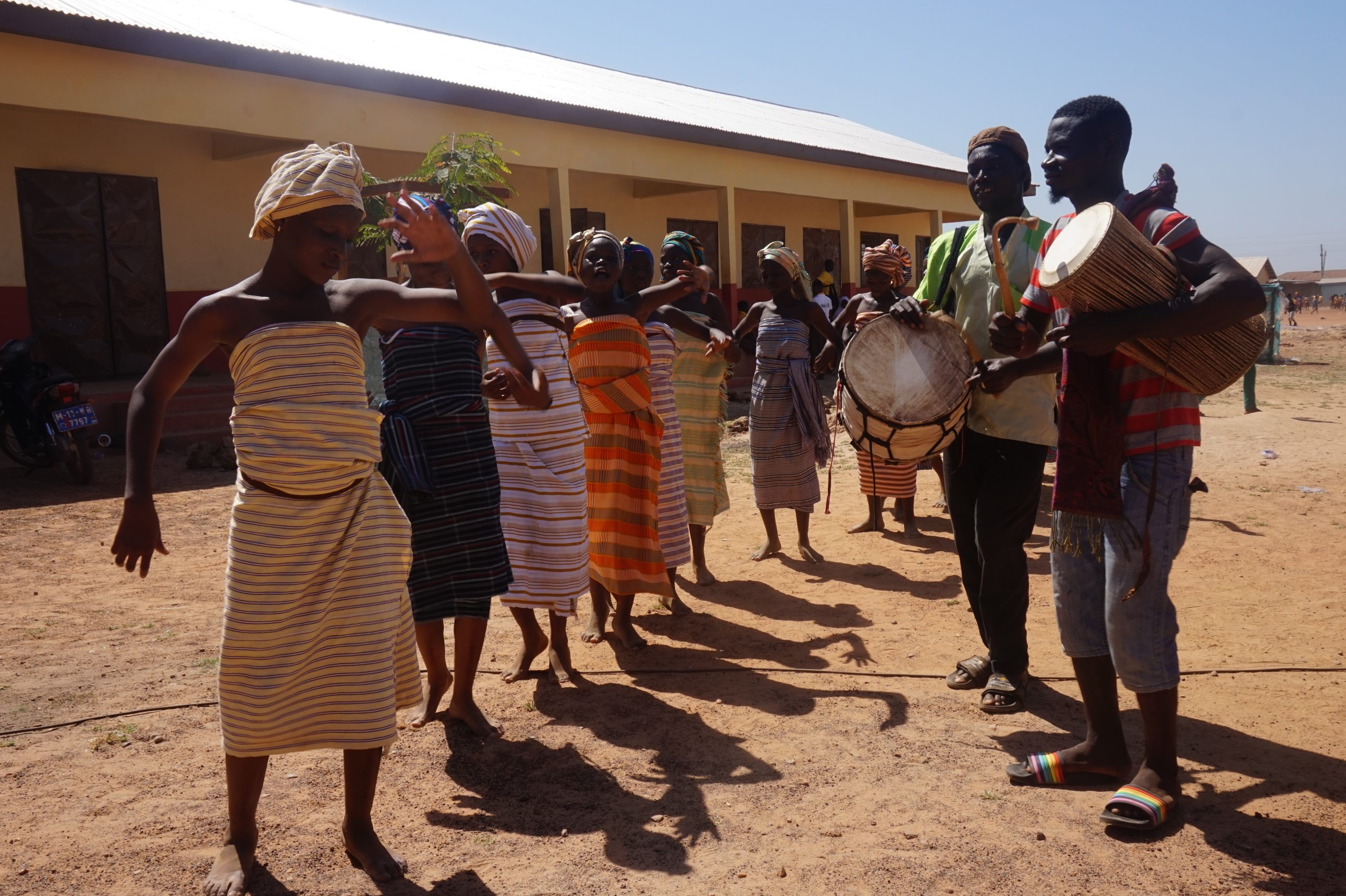
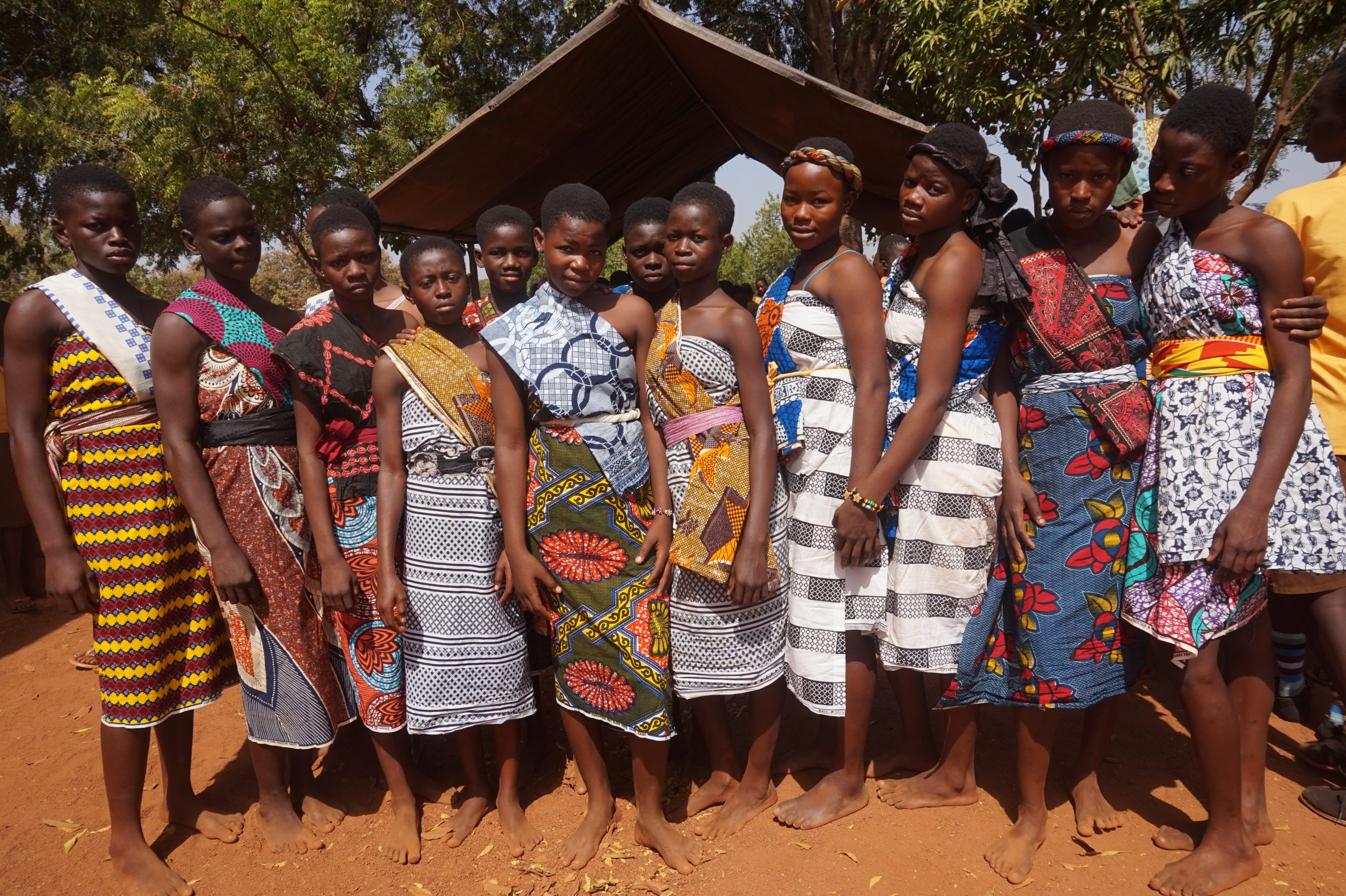
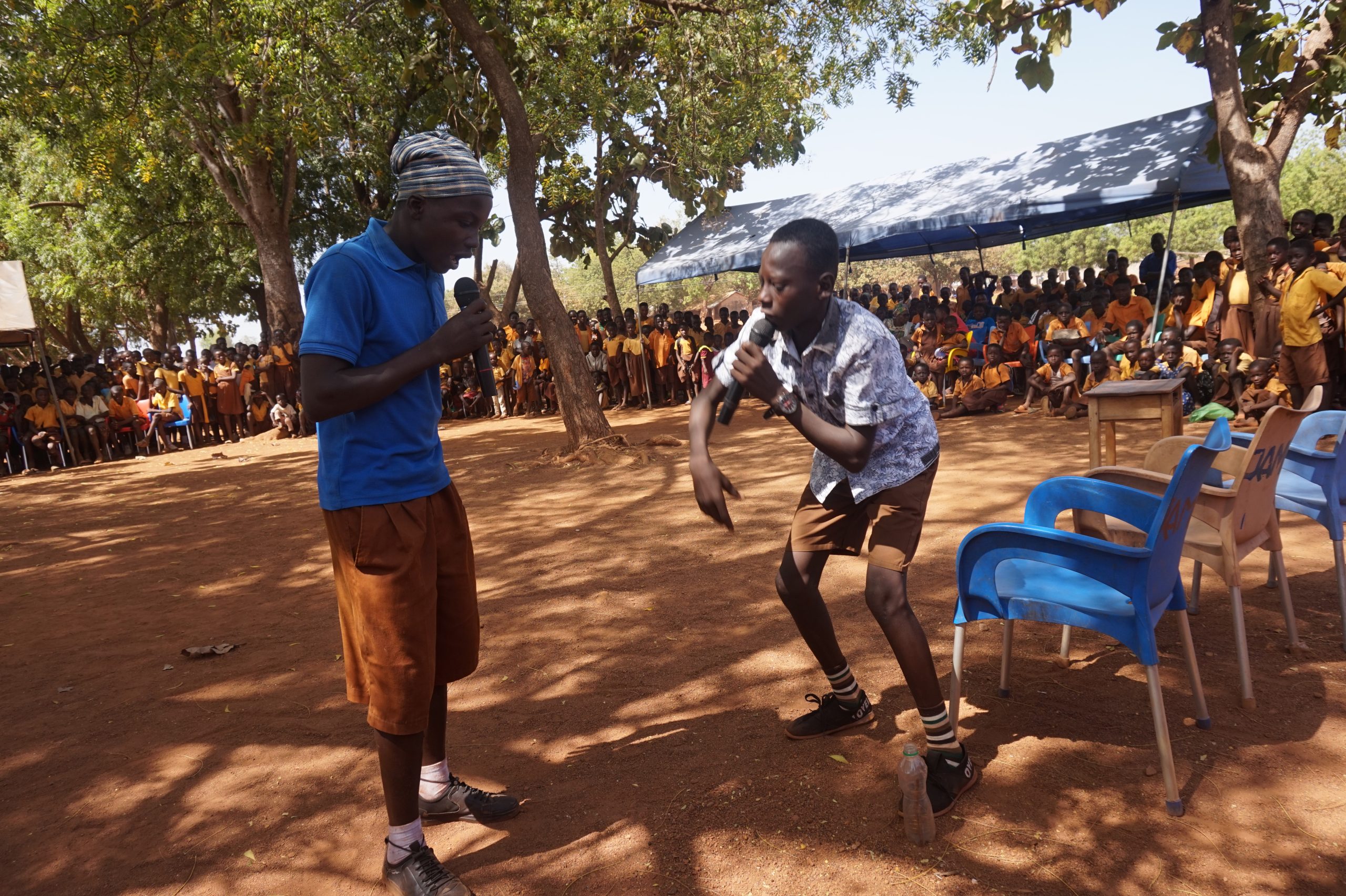
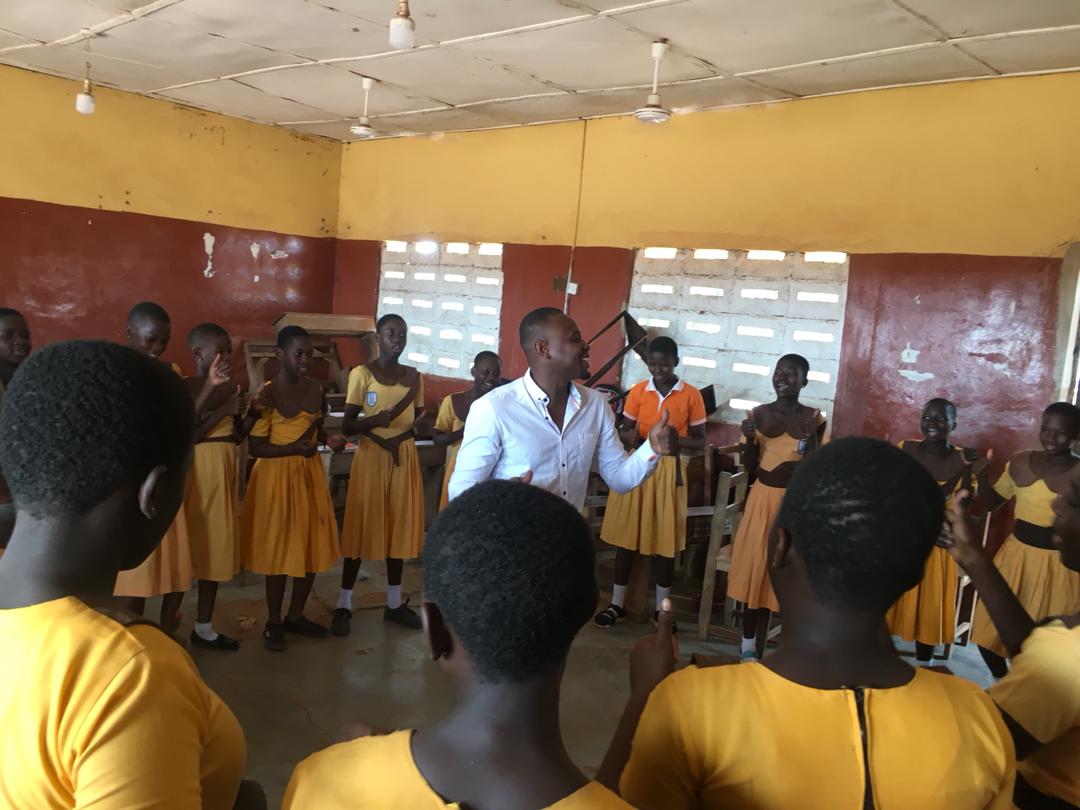
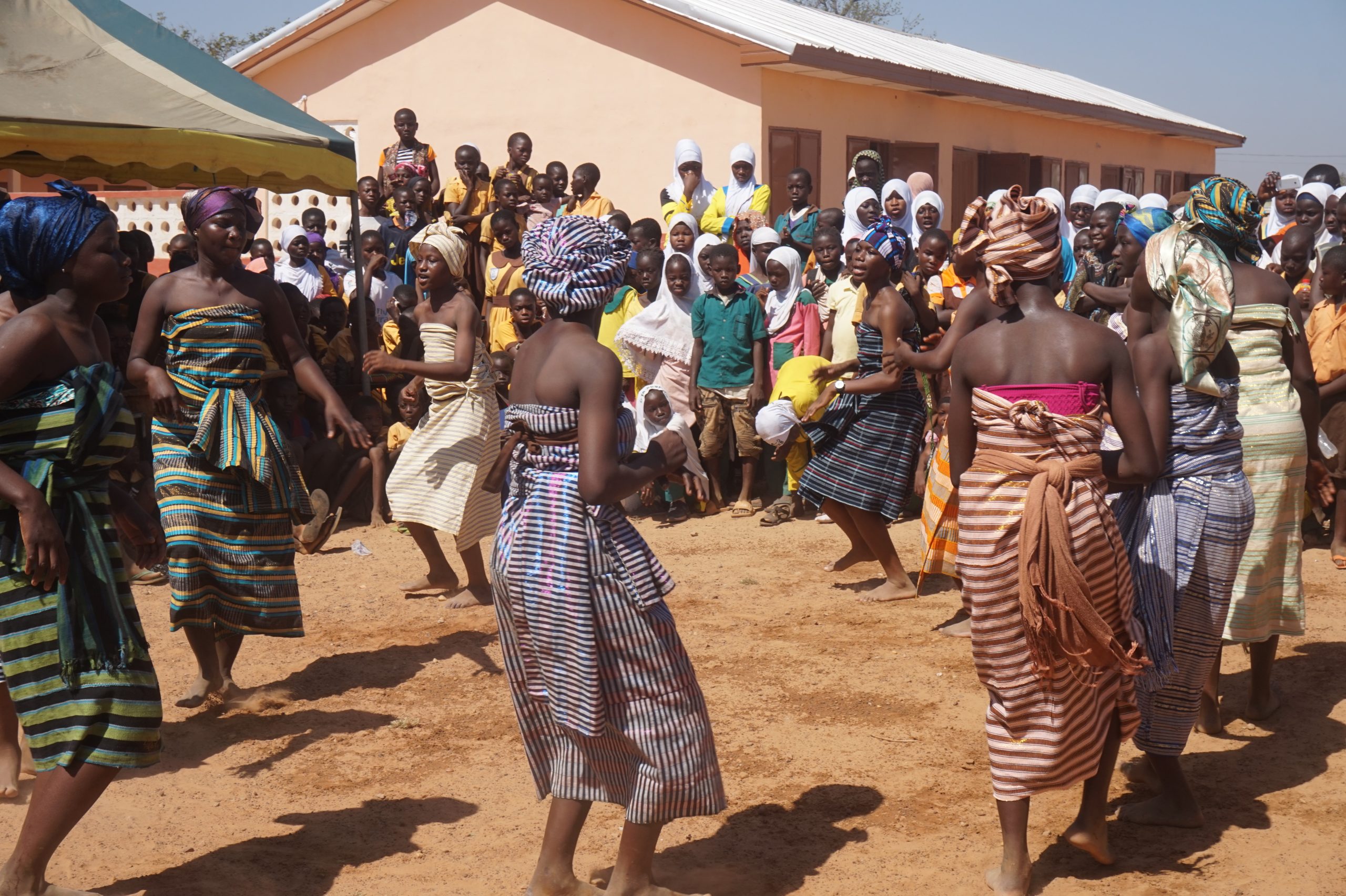
Get UP Speak Out ( GUSO)
Donor: Curious Minds/Dance4life Netherlands
Period: July 2016 – Dec. 2020
Results: Reached and empowered 6748 young people, mainly basic school pupils to get up and speak out for their sexual and reproductive health and rights which resulted in increased access to services, reduced STIs and unplanned pregnancies among young people in Tamale Metro and Talensi District. Over 487 adults were sensitized to create the enabling environment that supports young people sexual and reproductive health issues.
Situation Problem: The northern region is one of the three poorest regions of Ghana with a fast growing population that has a high illiteracy rate. Tamale is the regional capital with Islam as the predominant religion. Unplanned and unwanted teenage pregnancy occasioned by little knowledge of SRHR among young people is high. Other health and social concerns such as early, child and forced marriages, sexual violence, STIs, FGM, obstetric fistula and HIV and AIDS are also rife in the area. These conditions are compounded by the low empowerment of young people to speak out for their rights.
Response Solution: TfSC empowered young people through information, education and skills development to make them self-assertive to protect their sexual reproductive health and rights and speak for their rights. Young people were empowered through the four step approach of activate, inspire, education and celebrate. This was complemented by interactive theatre performances to create awareness on sexual and reproductive health and rights of young people. The four step approach was replaced with the Journey4life model in the last 2 years of the project.
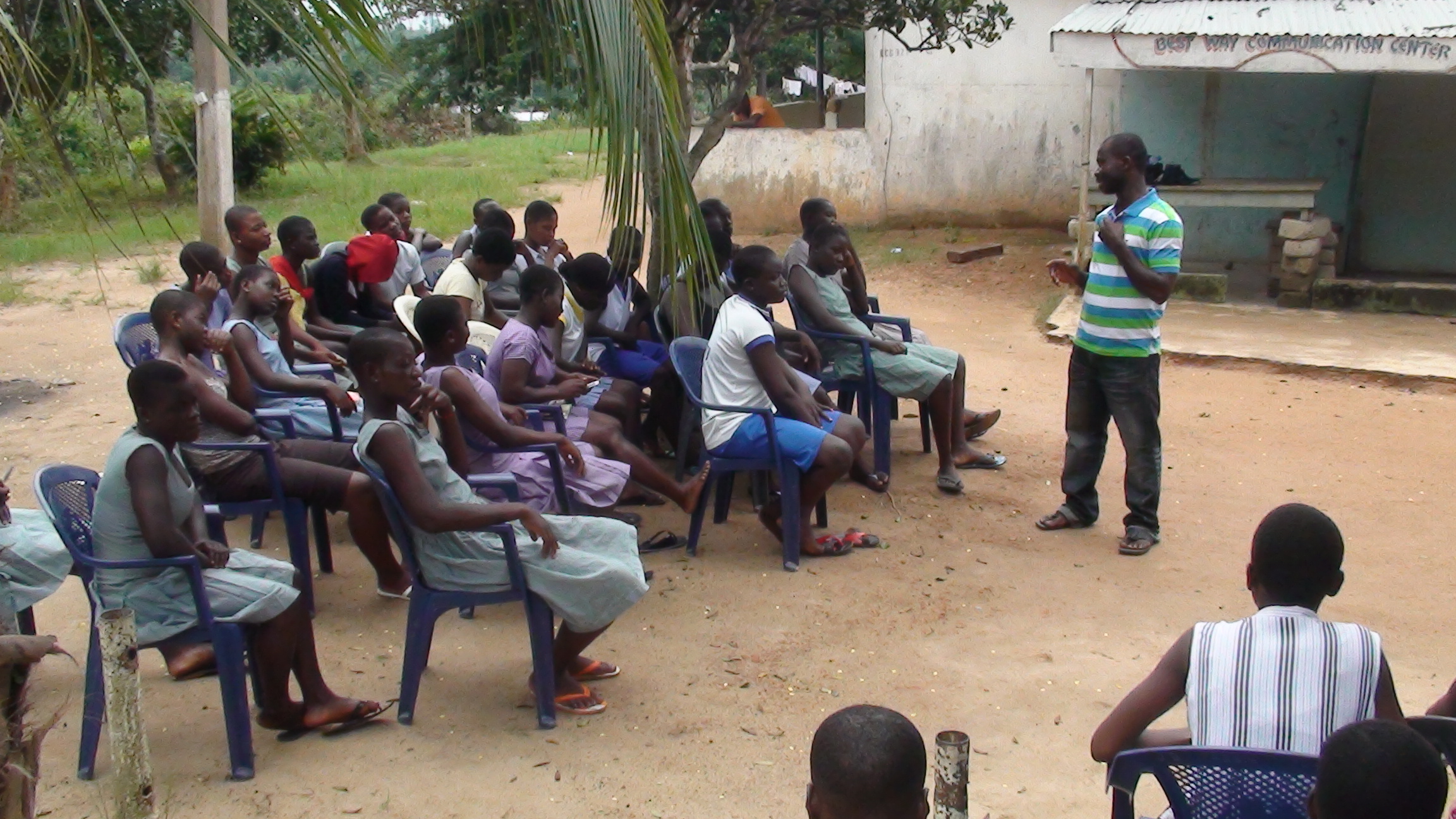
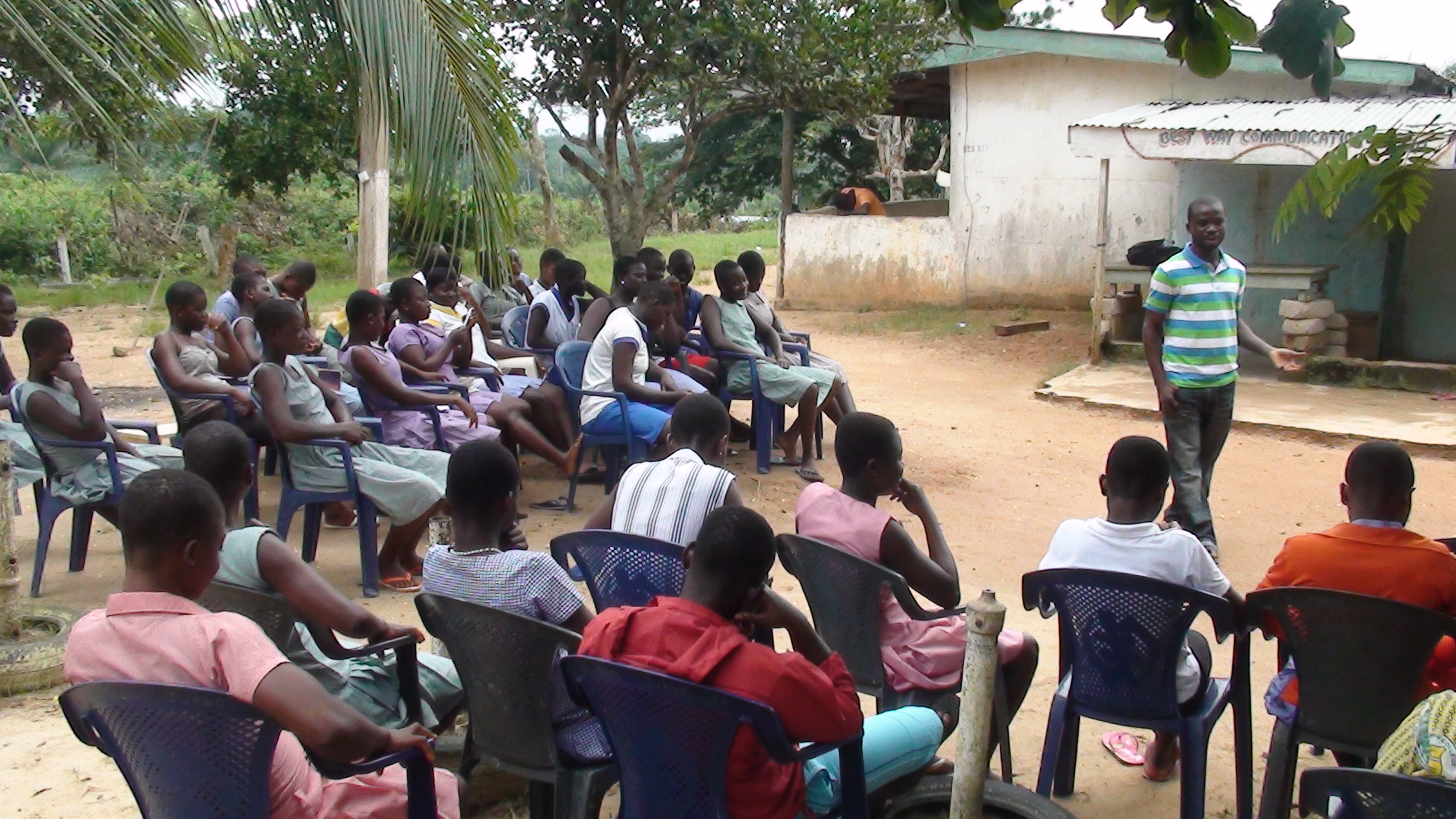
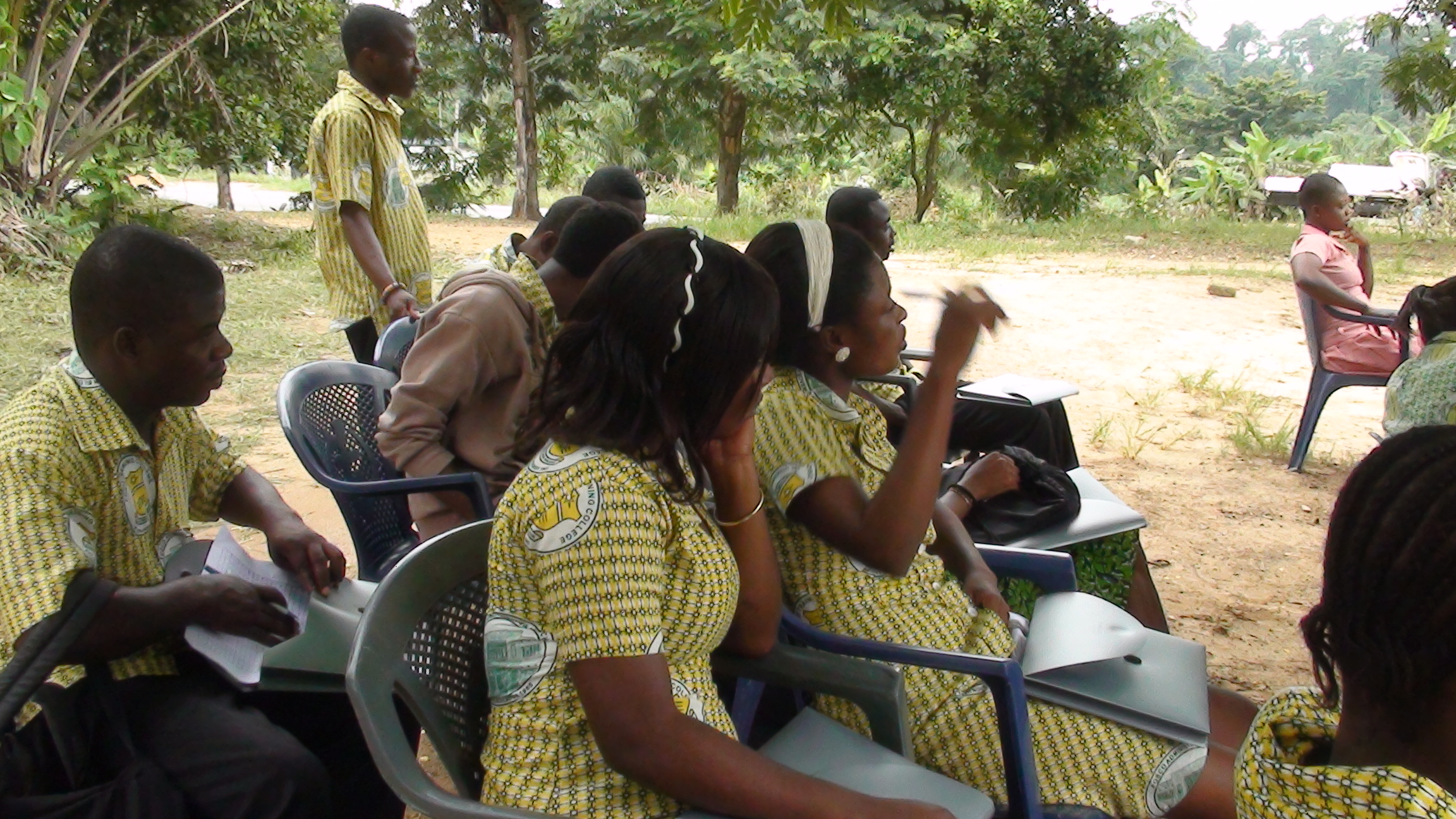
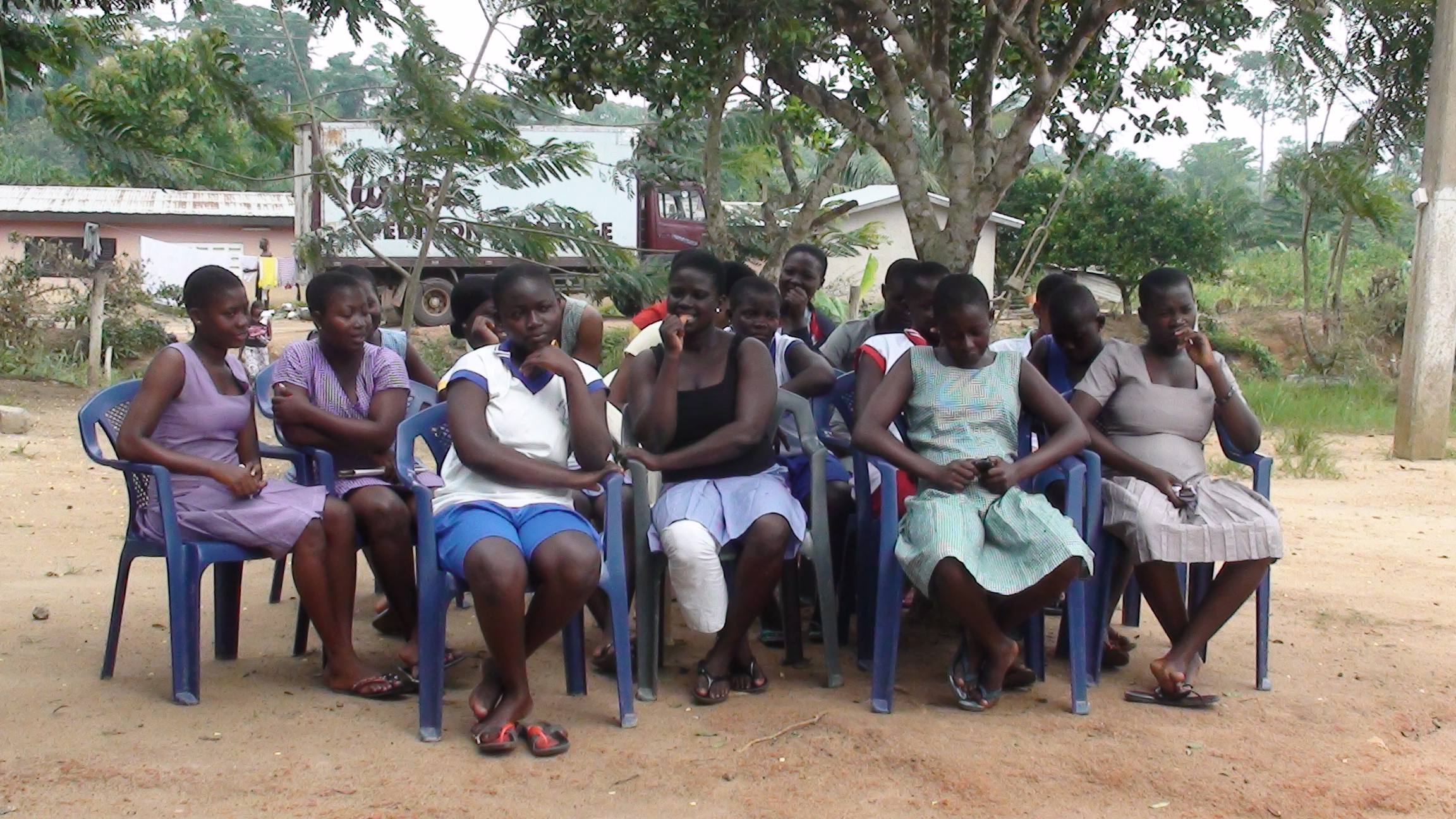
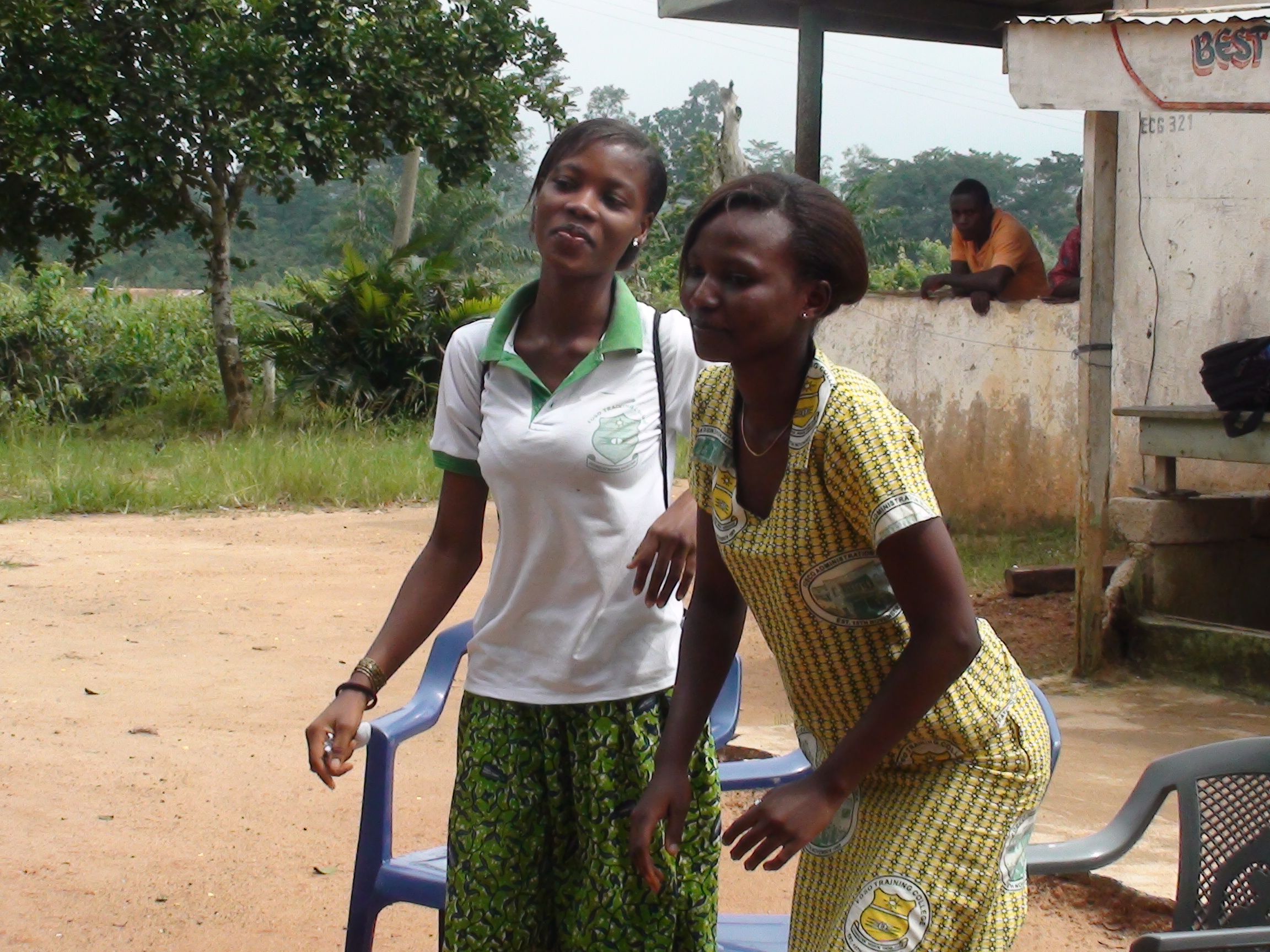
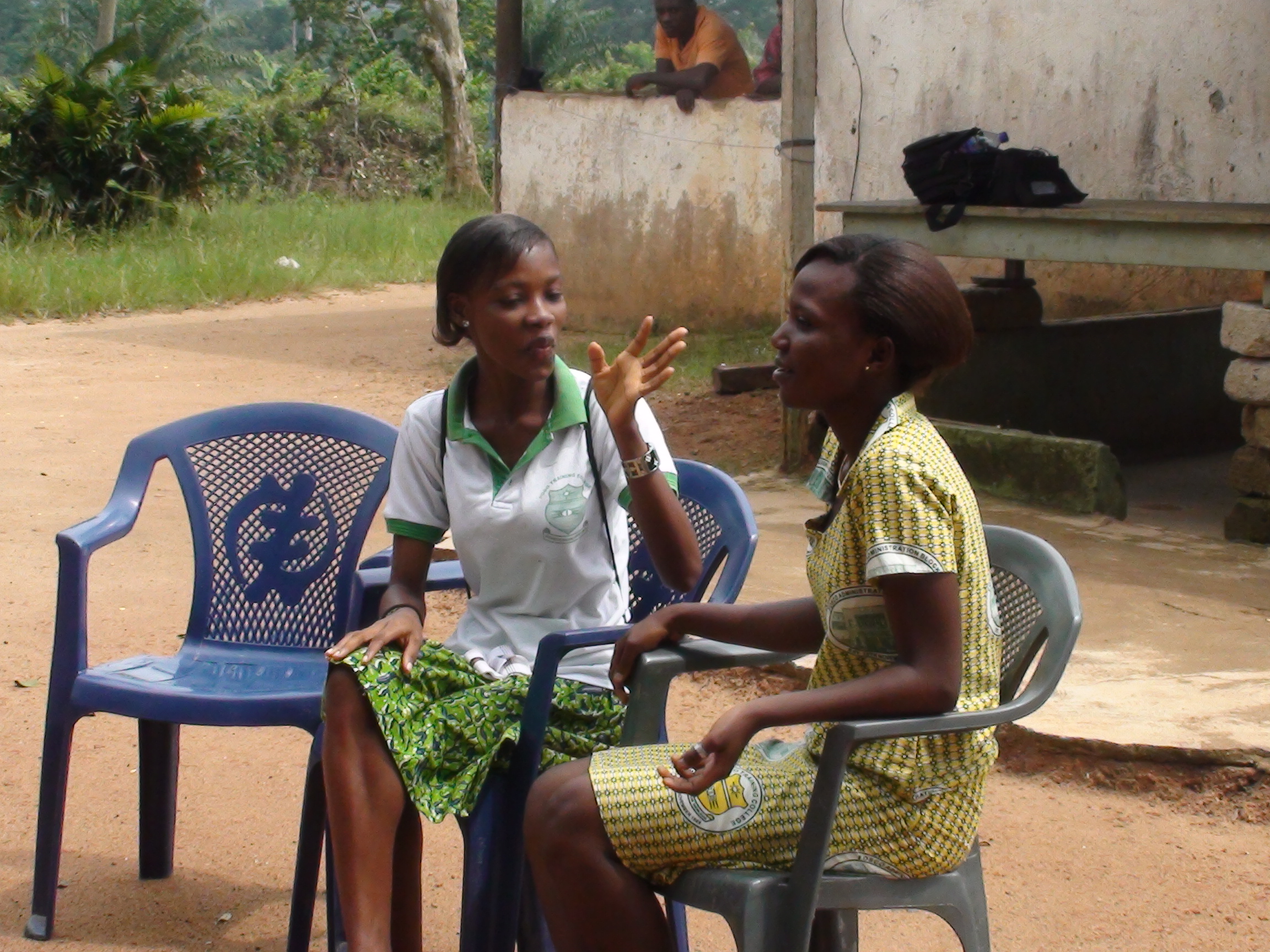
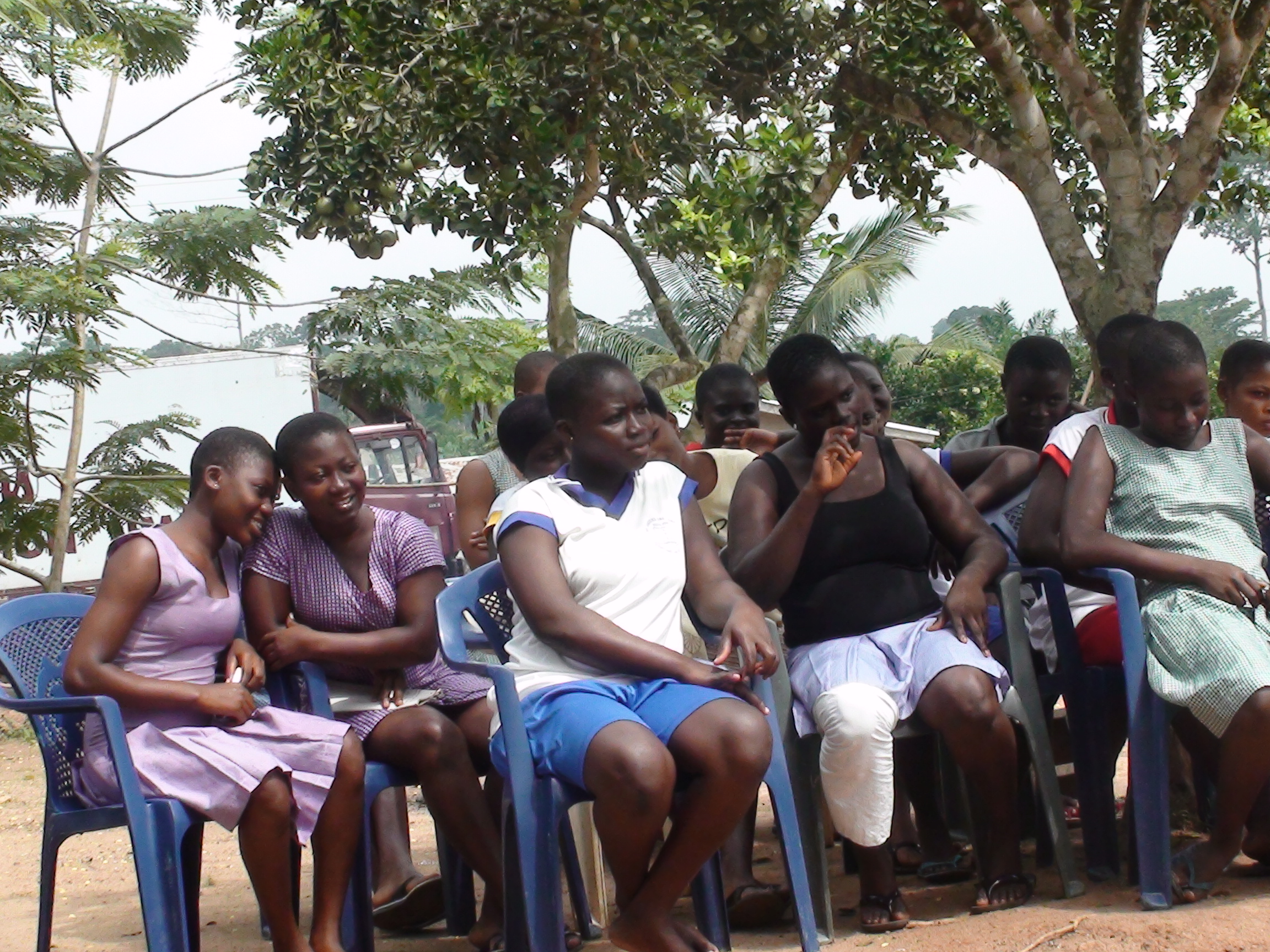
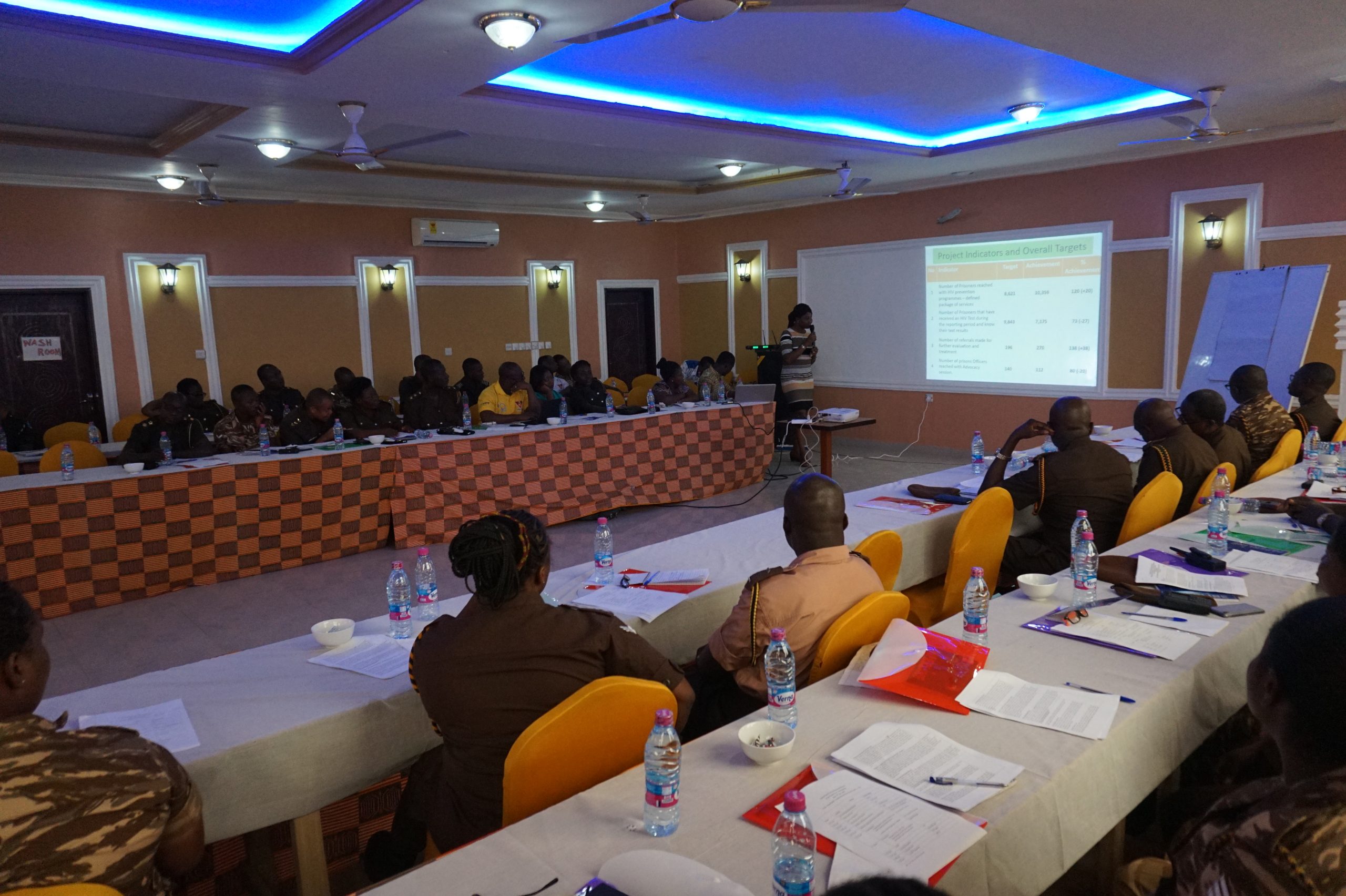
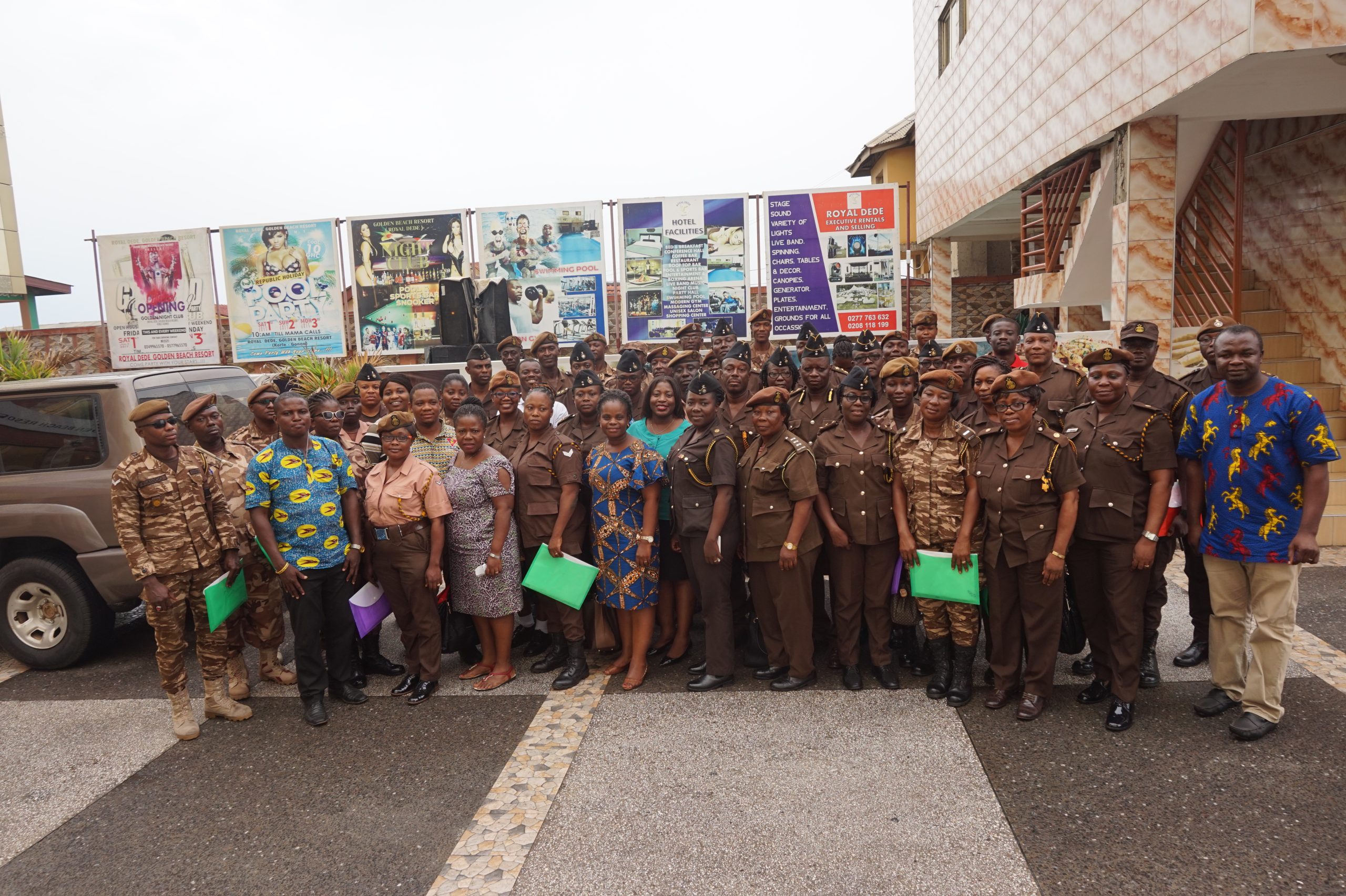
Reinforcing the Scaling Up of HIV Services:
Strengthening HIV Prevention and Effective Targeting
Donor: PPAG/Global Fund
Period: July2015 – Dec. 2017
Results: We educated and sensitized over 10,359 prison inmates on HIV and AIDS, STIs and TB; conducted 7,175 HIV and TB testing and counselling, referred 270 suspected prison inmates to health facilities for further evaluation, out of which 27 HIV positive and 18 TB positive cases were confirmed. Knowledge on HIV and TB has increased among prison inmates and more prison inmates known their HIV and TB status.
Situation Problem: The prisons are among the most crowded places in Ghana which makes them vulnerable to diseases and infections due to ease in transmission. The prison inmates involve themselves in social vices, either willingly or under duress, which may lead to the spread of HIV among prison inmates. Sexual intercourse among same sex, sharing of sharp objects, and sharing of tooth brushes are among some of the behaviours that may lead to the spread of HIV among prison inmates. The overcrowded nature of the prisons also makes the prison inmates and officers vulnerable to diseases such as Tuberculosis (TB) and other communicable diseases. All the 43 prison establishments in Ghana operate above their normal capacity and this makes both officers and inmates vulnerable to both HIV and TB.
Response Solution: Informed, educated and sensitized prison inmates on HIV and AIDS, STIs and TB through peer education (one-on-one and small group discussions) and HIV and TB testing and counselling services in 7 prisons (Awutu, Osamkrom, Winneba, Hiawa, Tarkwa, Koforidua and Kpando), and performed interactive theatre performances in 43 prisons to promote behaviour change. This was aimed at reducing new HIV and AIDS, STIs and TB infections across the 43 prison establishments in Ghana.
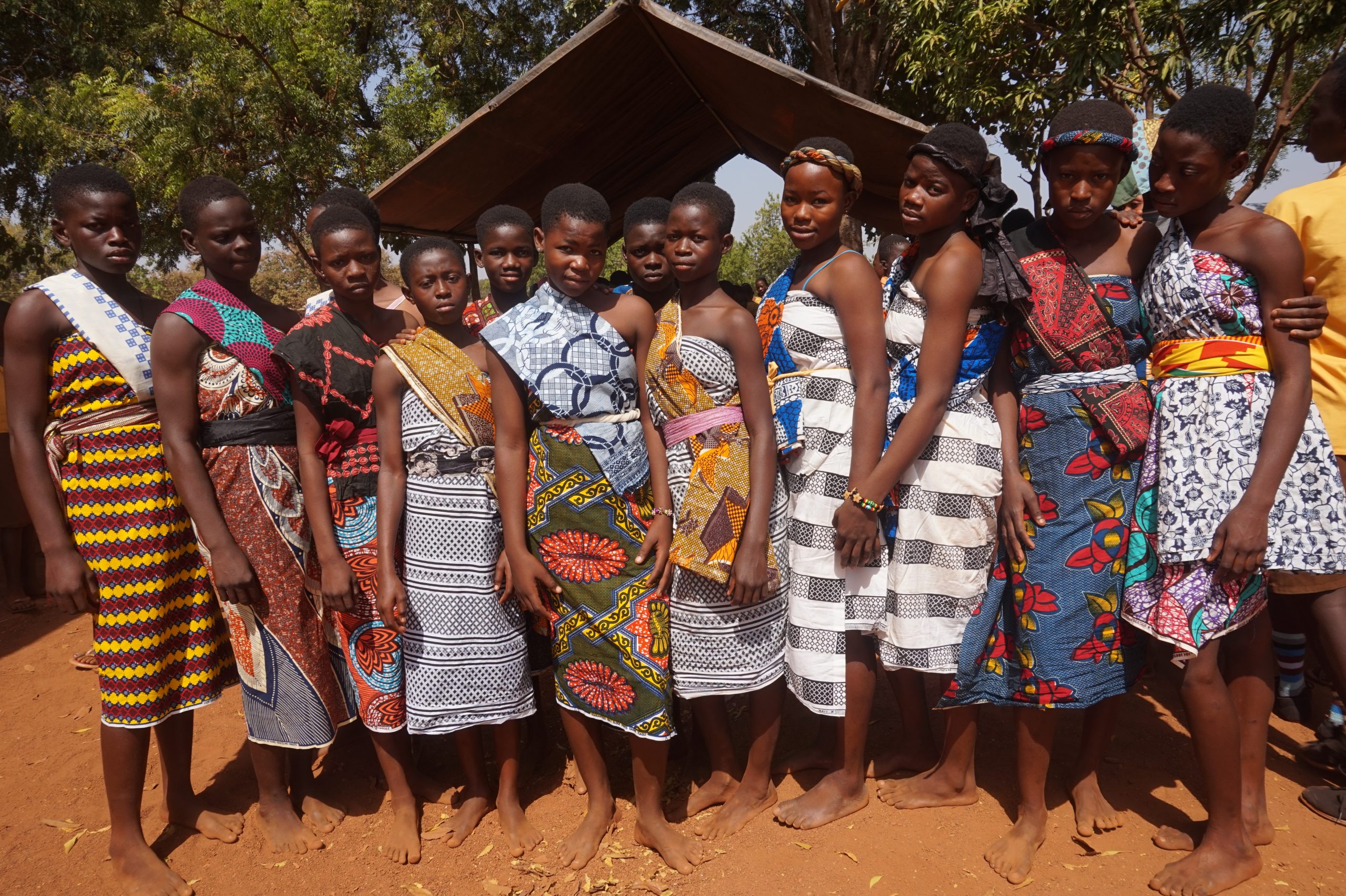
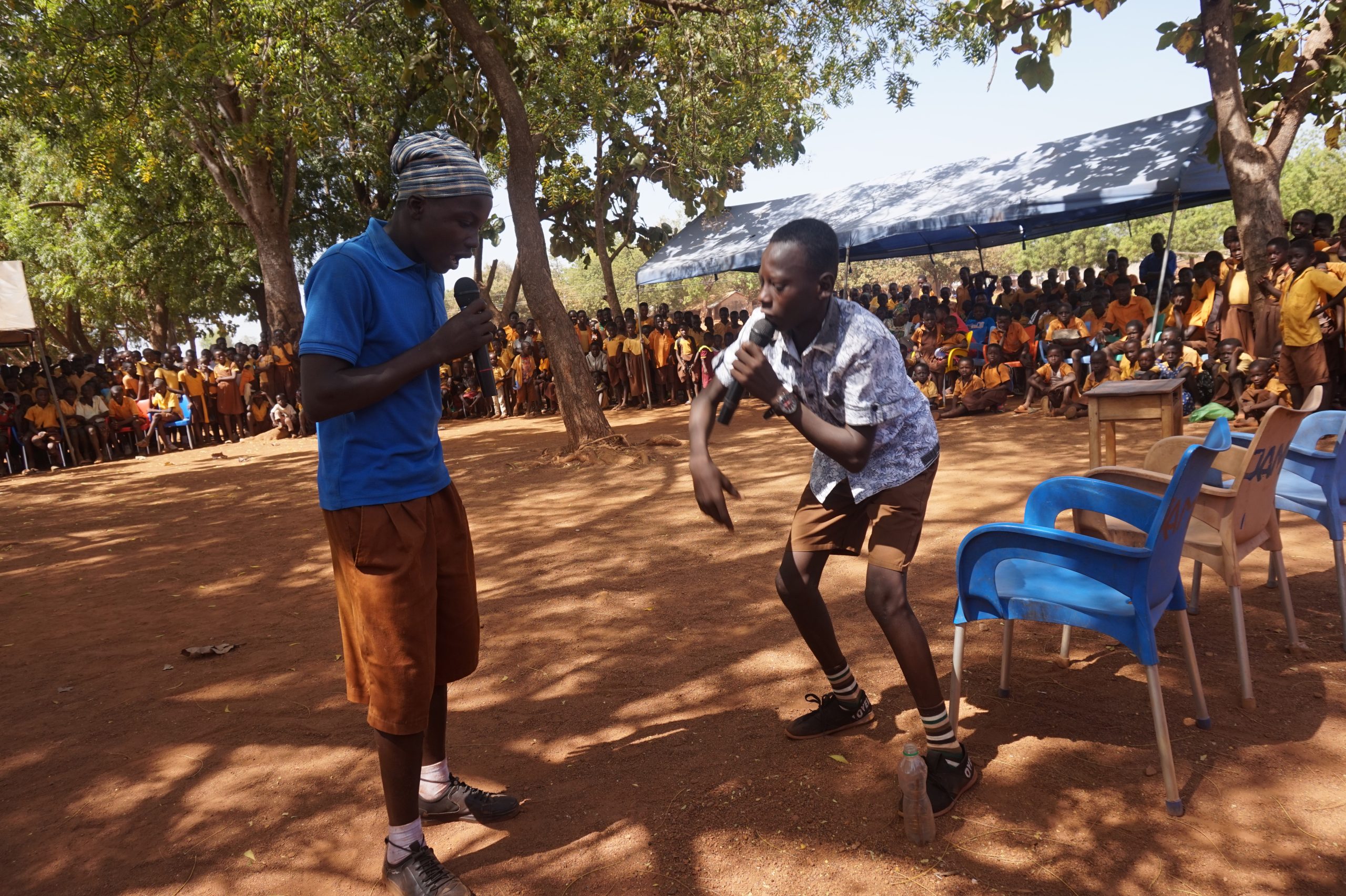
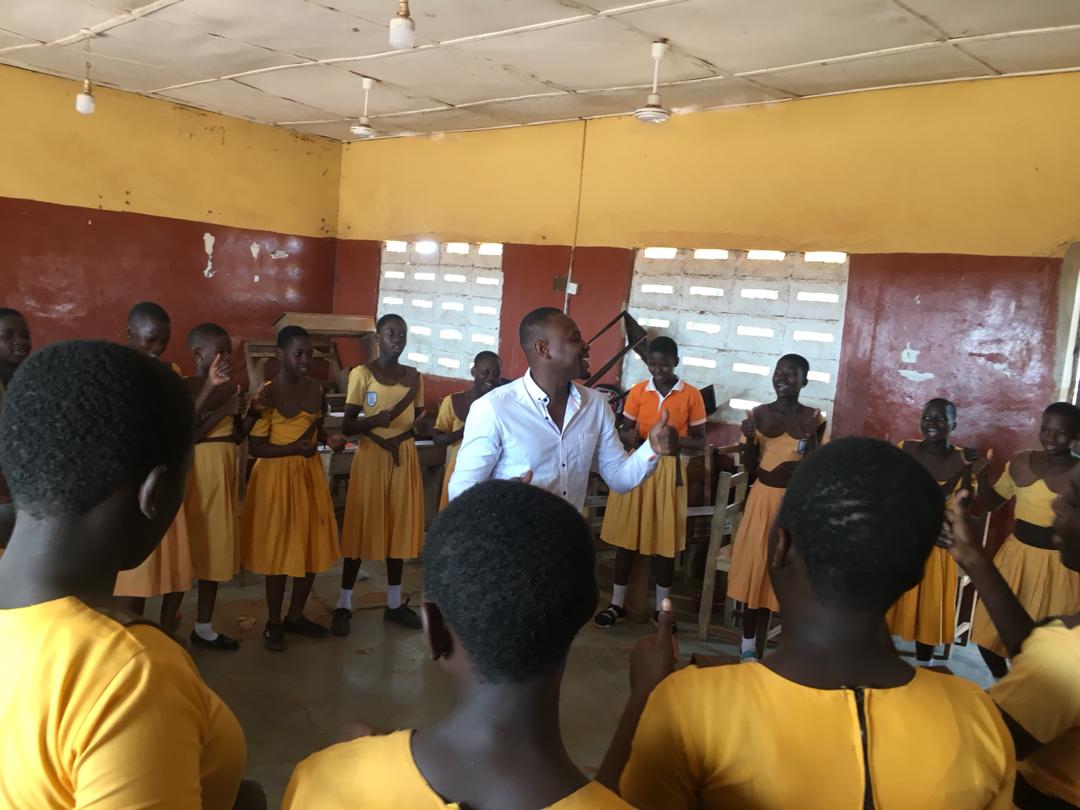
Theatre for Bird Flu Project
Donor: UNICEF
Period: January-March 2016,
Results Reached 5, 200 people including children and poultry farmers in the communities with information, knowledge and prevention of the bird flu transmission mode. No human infection was recorded and no further spread was recorded whilst the poultry farmers has the understanding of the necessity why the vertinary service/NADMO had to destroy the remaining birds,
Situation Problem: The outbreak of Avian Influenza (bird Flu) in 2015 in Ghana showed that Greater Accra Region with 30 communities in 11 districts faced the problem with a total destruction of 69,100 birds. Such problem could lead to an unsafe environment for consumption of any poultry and its products, affecting children, parents, and community members. Good awareness education, communication and knowledge of bird flu transmission modes and prevention could avoid human infection. That was where Theatre for Social Change (TfSC) came in.
Response Solution: To address the issue, UNICEF-Ghana, NADMO, and Vetinary Service, first met. Working together, they created a plan to use TfSC’s interactive drama to create the needed awareness, education, information and knowledge of bird flu in the 20 most affected communities in Greater Accra Region for the people and the bird farmers whilst the veterinary doctors serving as resource persons. TfSC worked with community volunteers on peer education, focus-group discussions, advocacy, and devising stories for drama performances. 160 community volunteers from 20 communities, learned to create the awareness and avoidance of bird flu infection through peer education, focus-group discussions and drama performances . The volunteers stressed on avoidance of eating any poultry and its products in the communities. Encouraging community members to express opinions, and reporting for support in case of any evidence of the bird flu
